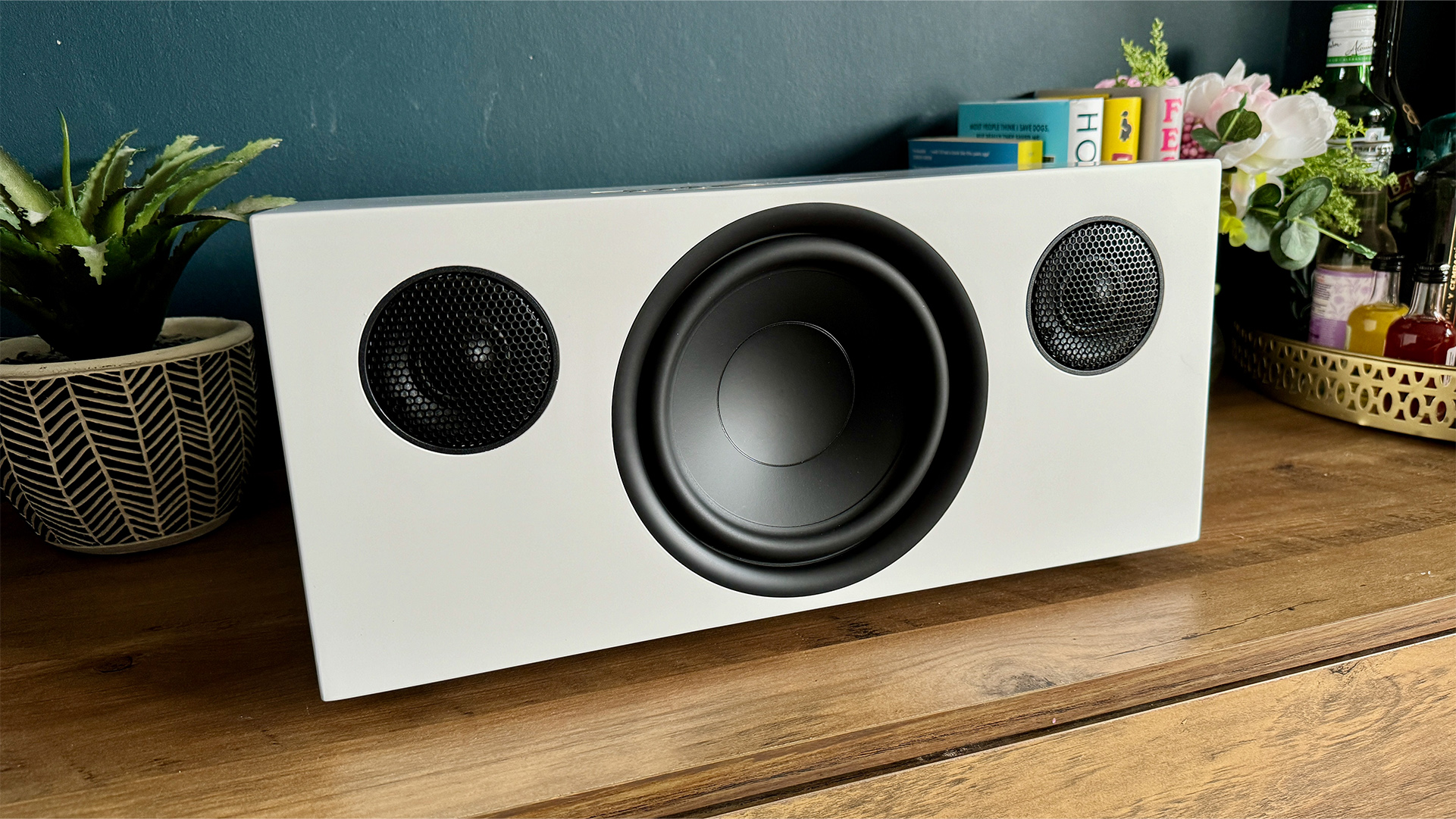Best smart speakers 2025: top voice-assistant speakers tested by our experts
The best wireless speakers with voice control smarts
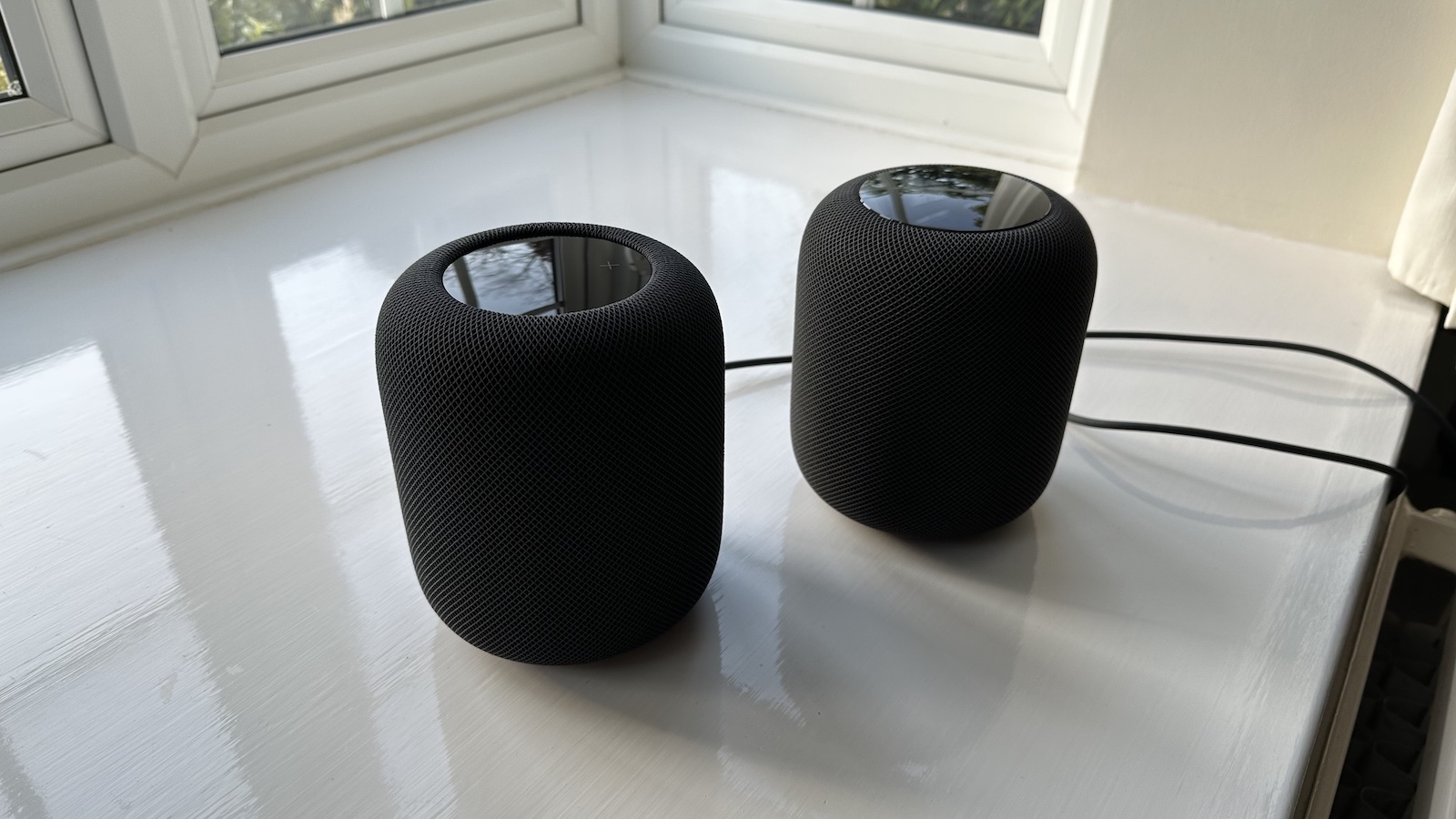
When smart speakers first emerged just over a decade ago sound quality was not their strong point. But with brands from Apple to Sonos now integrating voice assistants into their products, it’s possible to get both AI-powered smart skills and top-notch audio performance from one device. But which smart speakers combine the two most successfully?
Before scrolling down to find out which smart speakers our experts recommend, it’s worth looking at which AI assistants are available. Amazon’s Alexa is probably the most famous and widely supported, with Google Assistant a close second, while Siri is only found on Apple products. All three have their strengths and weaknesses, and which one you’re most used to using might dictate which of the products below are best-suited to you. If you just want to know which is the best wireless speaker or the best Bluetooth speaker, we've got guides for those too.
All of the smart speakers featured on this list have been comprehensively tested by our team of experienced experts, and as well as the usual focus on sound quality, build and features, we’ve also assessed how responsive they are to voice commands and how well they perform their various smart duties.
You can find out more about how we test smart speakers at the bottom of this page, but first why not check out our pick of the best smart speakers we’ve reviewed to date.
The quick list
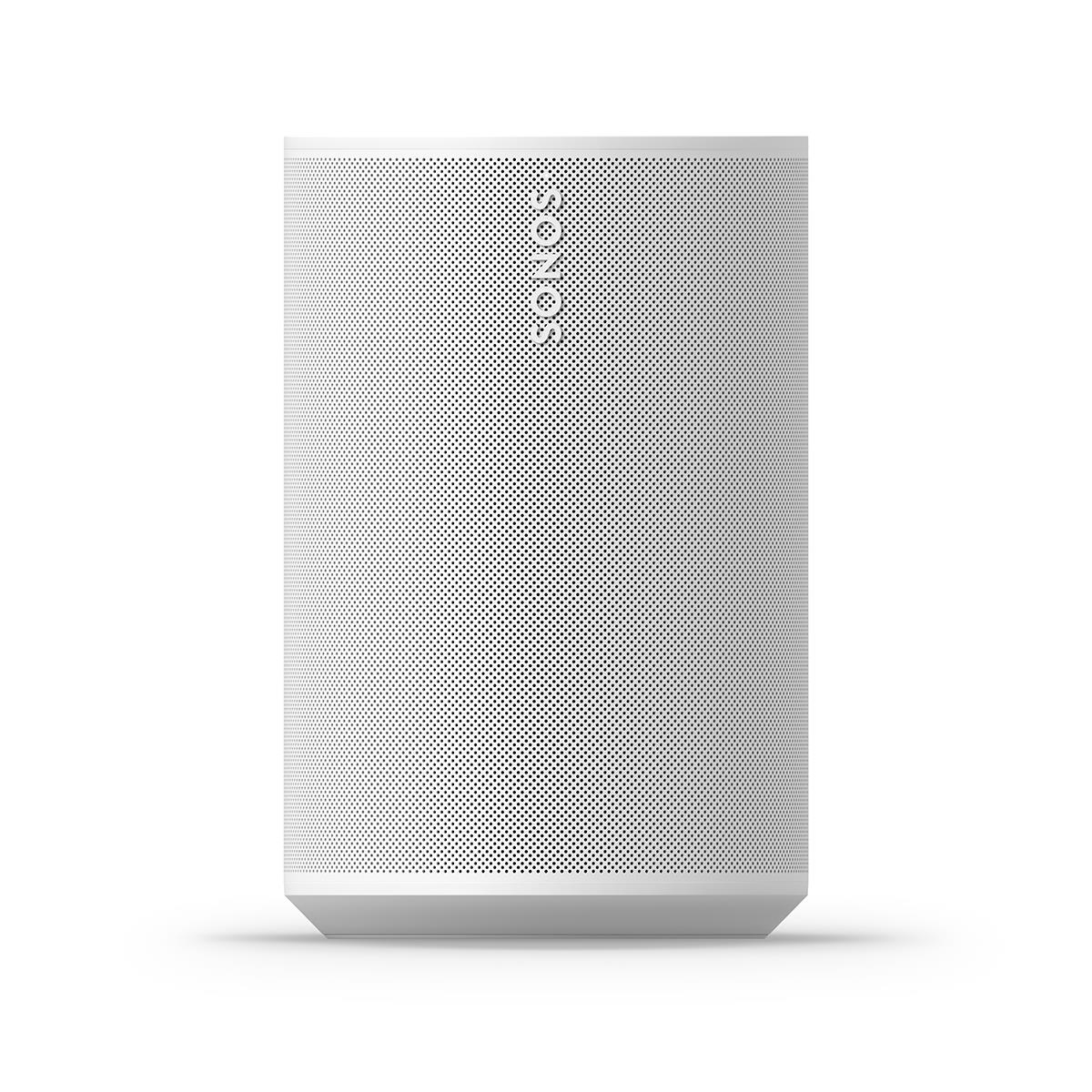
The Sonos Era 100 is the best smart speaker for most users, covering all the key bases, including sound, features and compatibility, with confidence. A superb-sounding, beautifully made all-rounder.
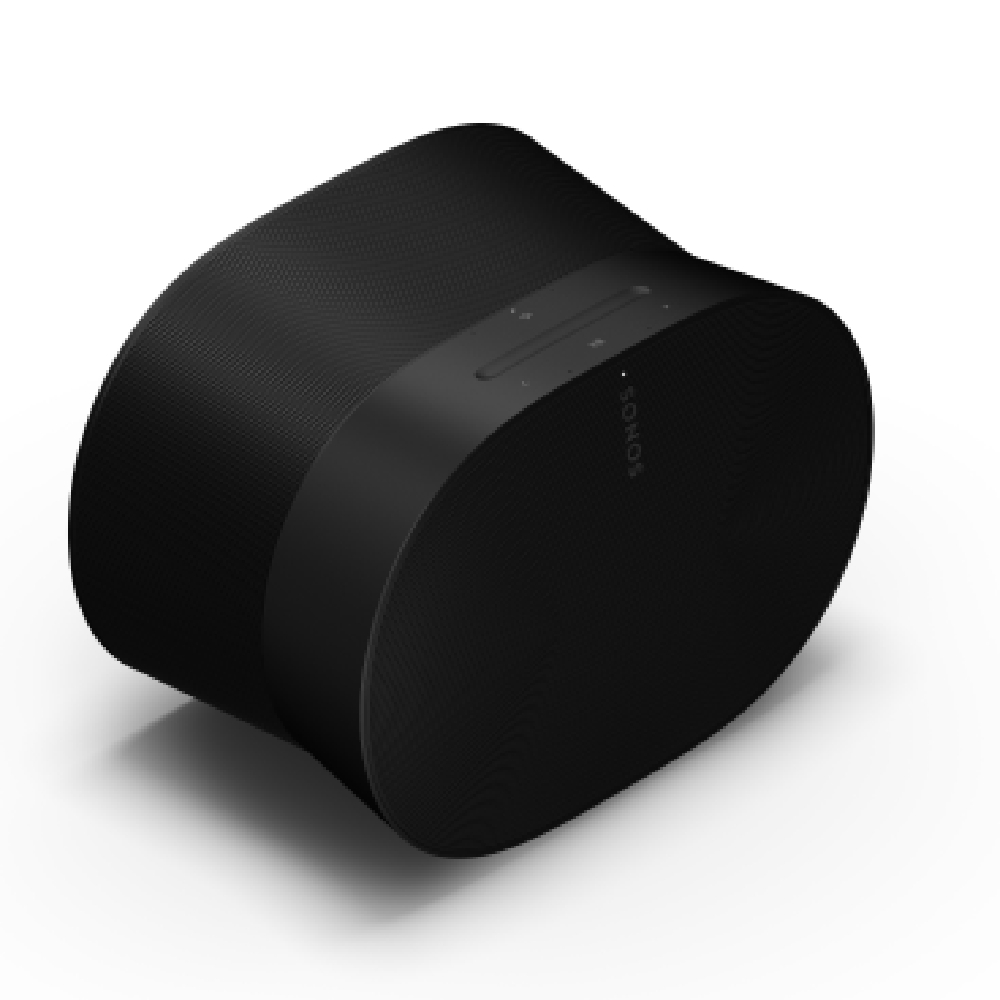
If spatial audio is a priority, the Sonos Era 300 implements it beautifully. An immersive, refined performer, it is feature packed, easy to use and built to the highest standards.
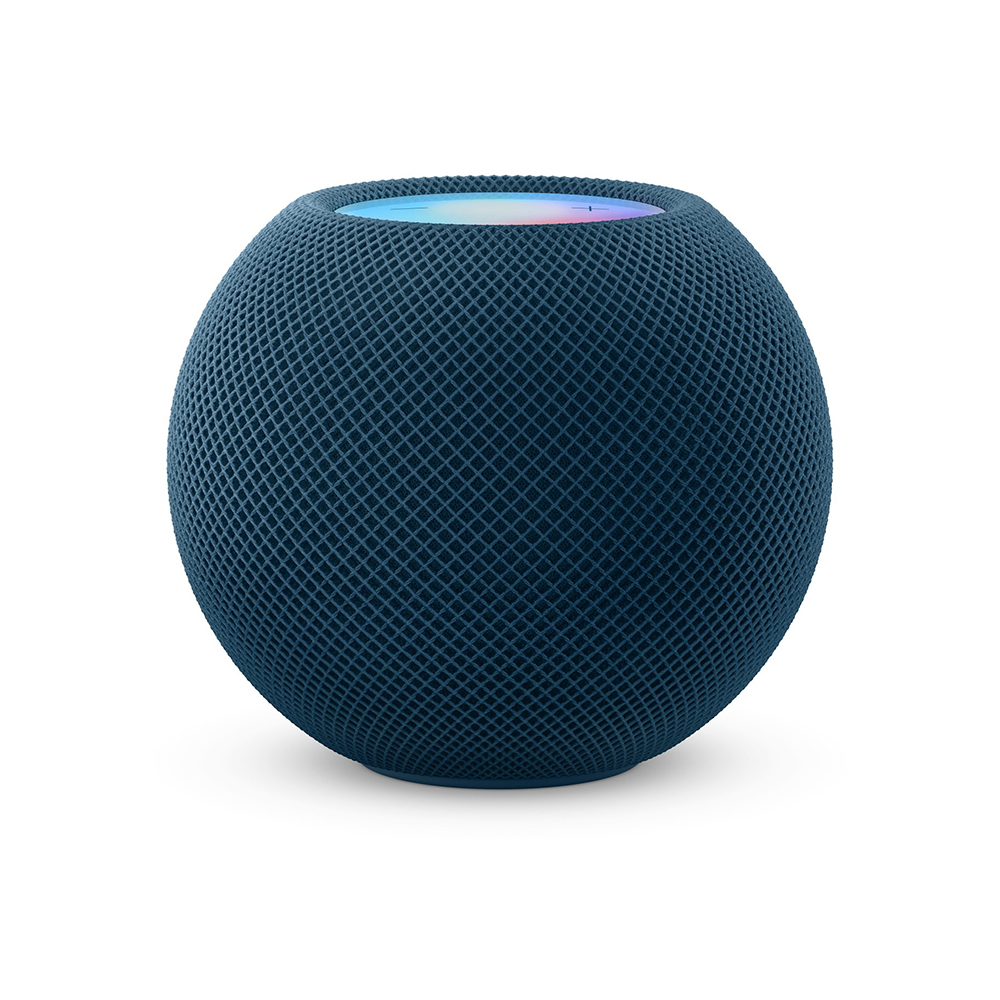
Not keen on spending a fortune? The diminutive HomePod Mini will give you streaming smarts and sophisticated sound without costing you an arm and a leg. A great choice for Apple lovers on a budget.
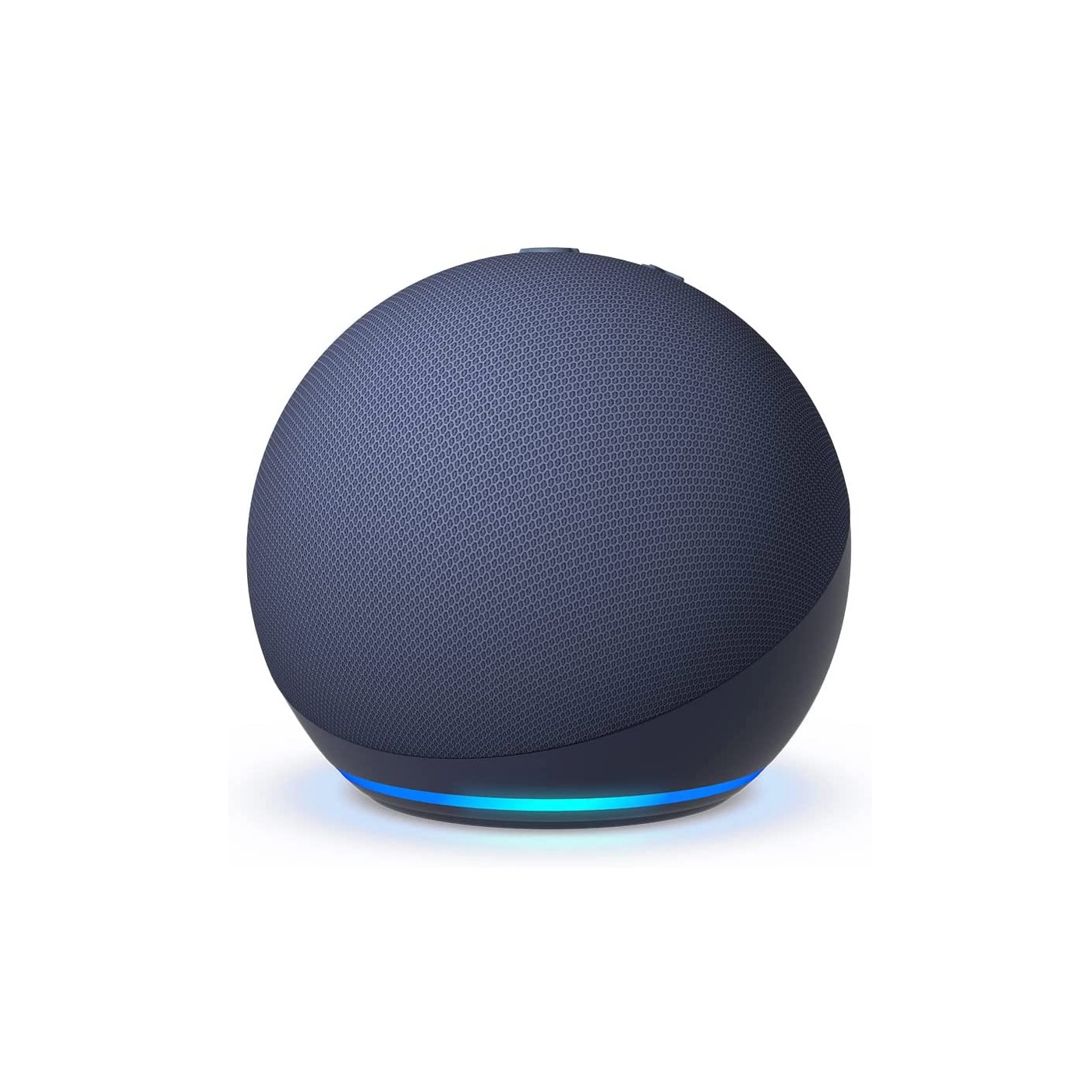
If you're an Amazon lover who just can't live without your beloved Alexa, the fifth generation of the Echo Dot brings together a pleasingly expansive sound and solid build with the smartest iteration of Amazon's AI assistant yet. A truly five-star product.
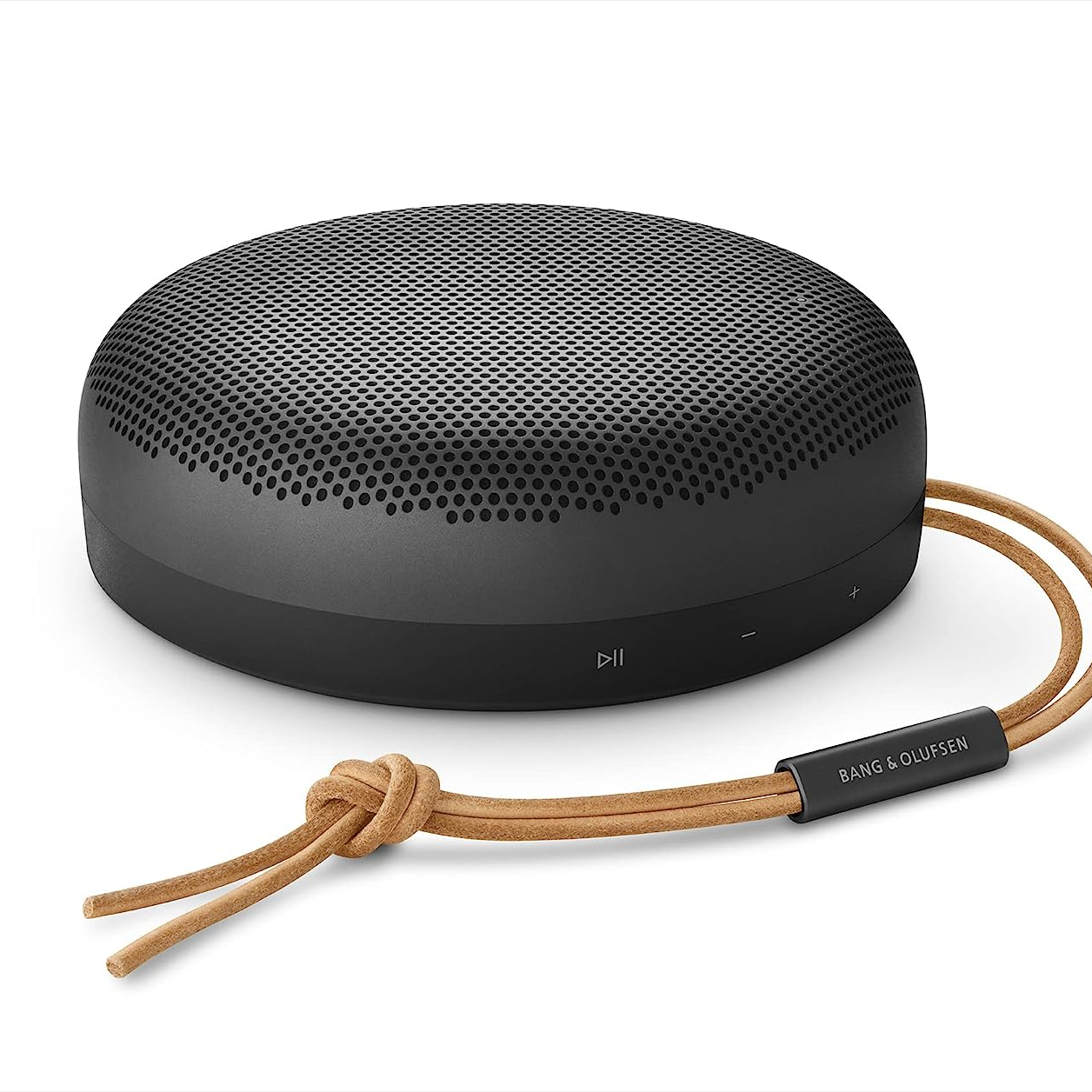
The B&O Beosound A1 (2nd Gen) combines AI-powered smarts with rugged portability to make one super-sounding, beautifully made portable speaker.
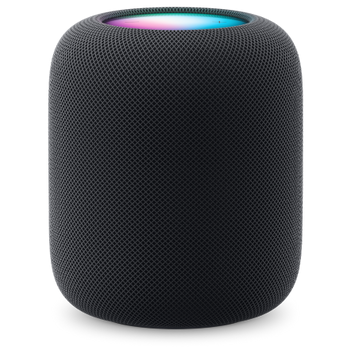
If you're an Apple lover heavily embedded within the megabrand's ecosystem, you really can't do better than the brilliant HomePod 2. It's sleek, it's smart, and it sounds absolutely superb.
Load the next product ↓
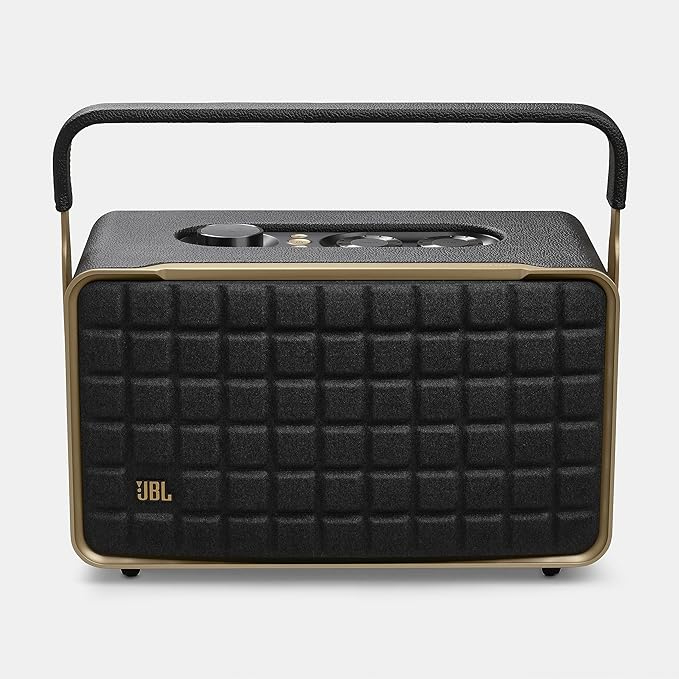
The semi-portable JBL Authentics 300 also supports Alexa, but it's a great option if you happen to prefer Google Assistant as your helper of choice.

I'm a senior staff writer at What Hi-Fi? and have reviewed dozens of products since joining two years ago, including wireless speakers and systems with smart features built-in. I've had hands-on experience with every smart speaker on the list below, testing out the responsiveness, accuracy and intelligence of their smart capabilities by asking each AI voice assistant to play music in various ways and for various genres and use cases, along with the usual requests for time, weather and bad jokes. Sound quality remains our key priority when testing any smart speaker, while we also assess the range of features available and the build quality expected for the price, to ensure you get the best value for money.
Best smart speaker overall
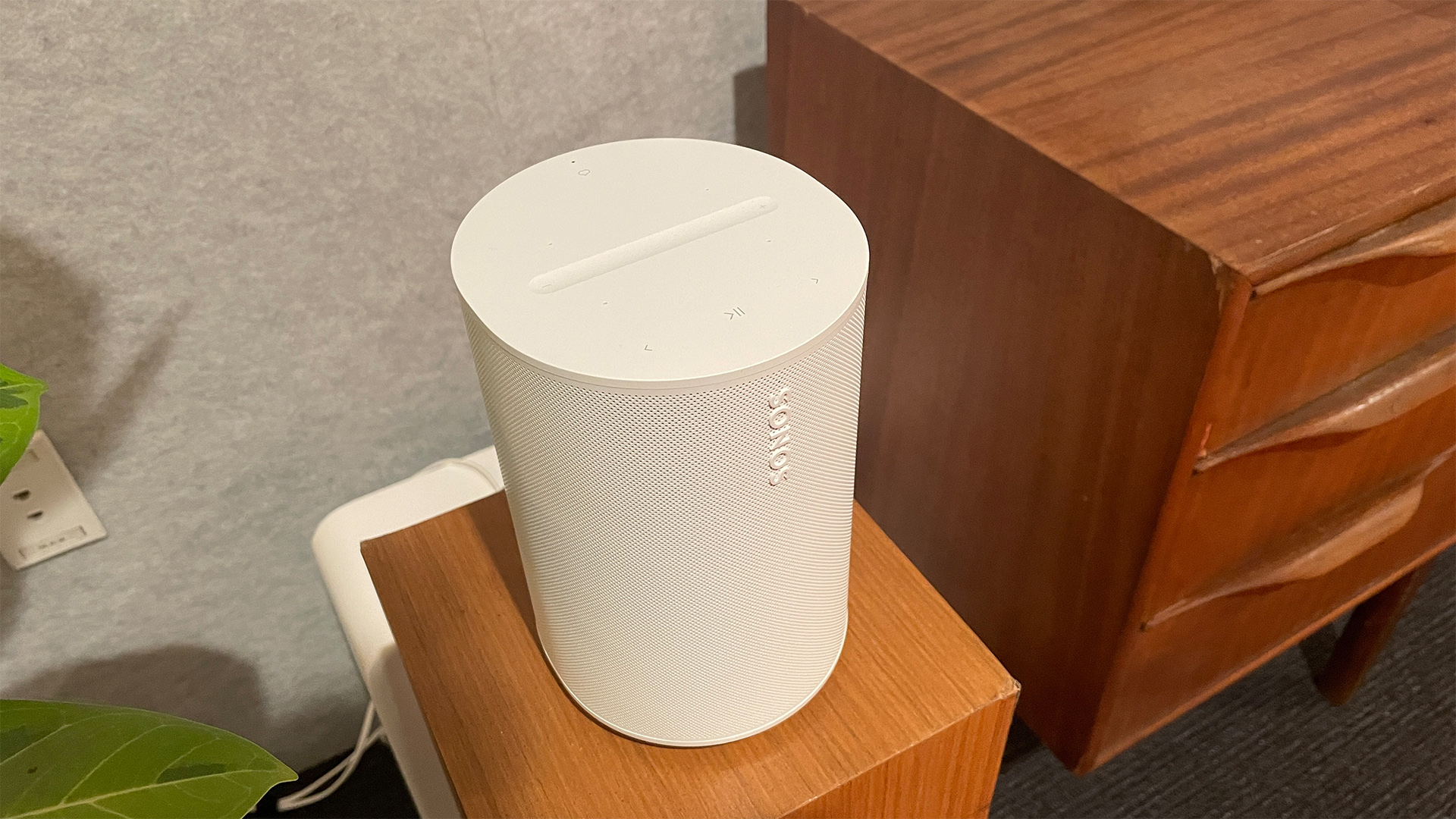
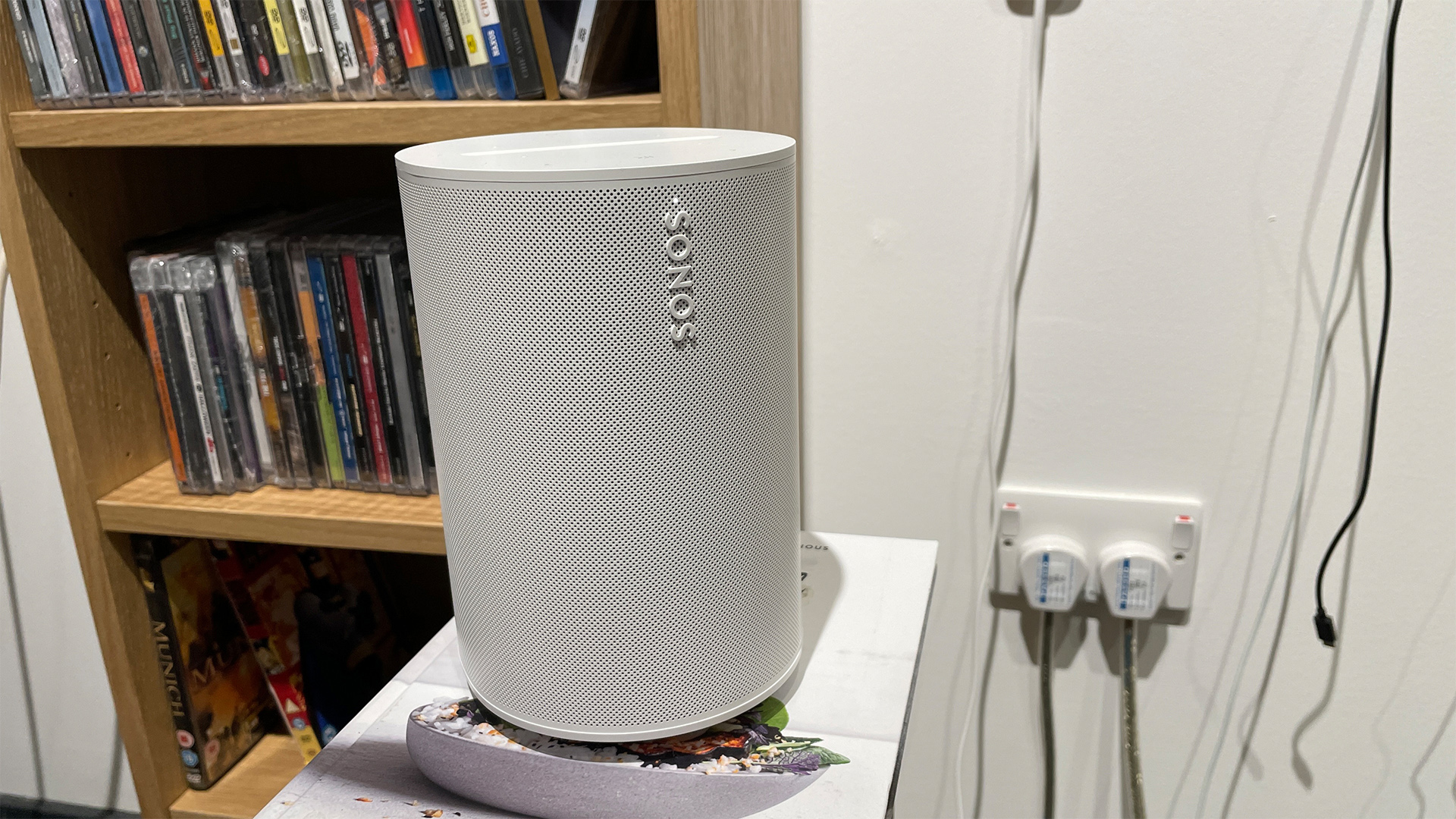
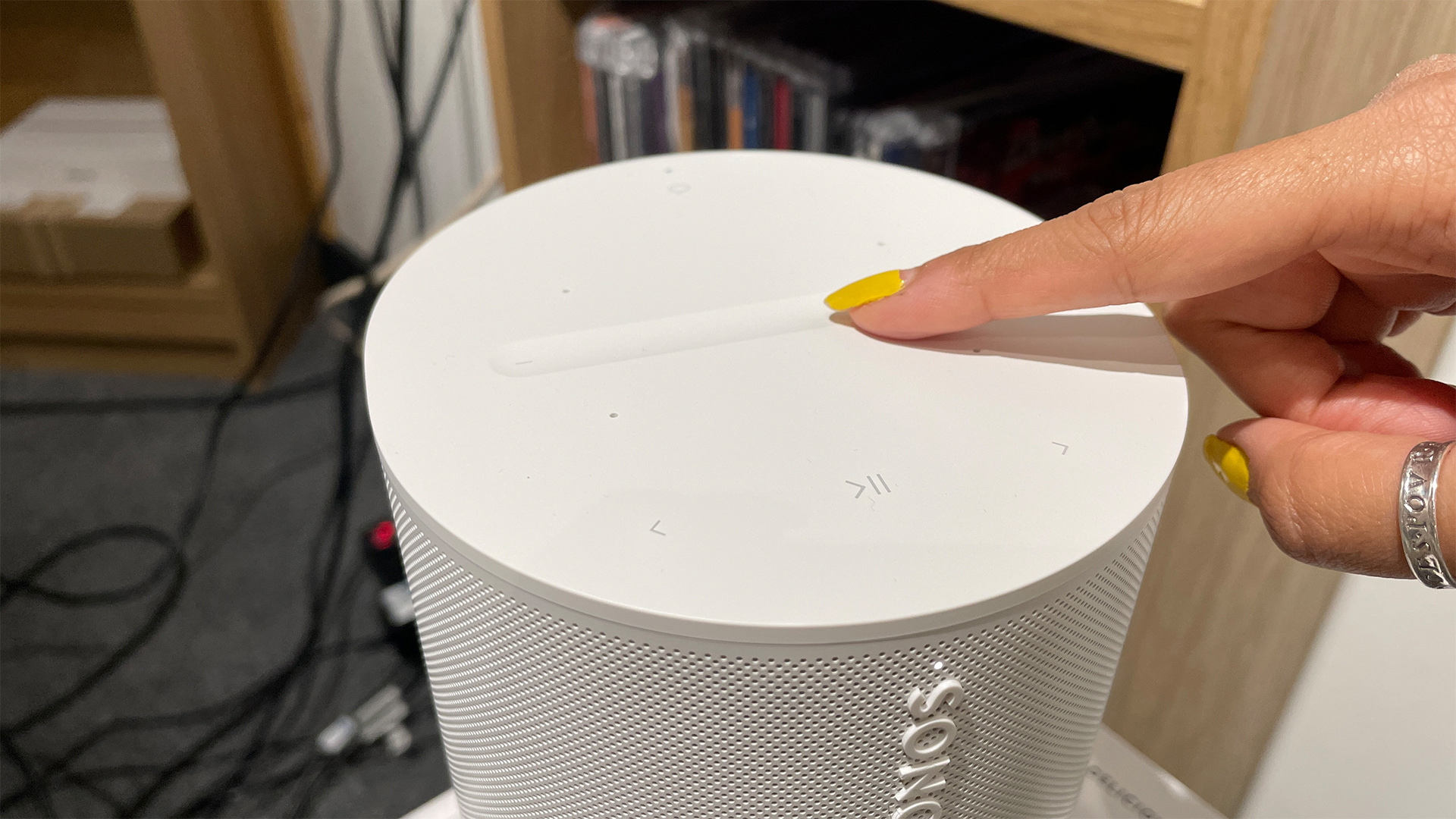
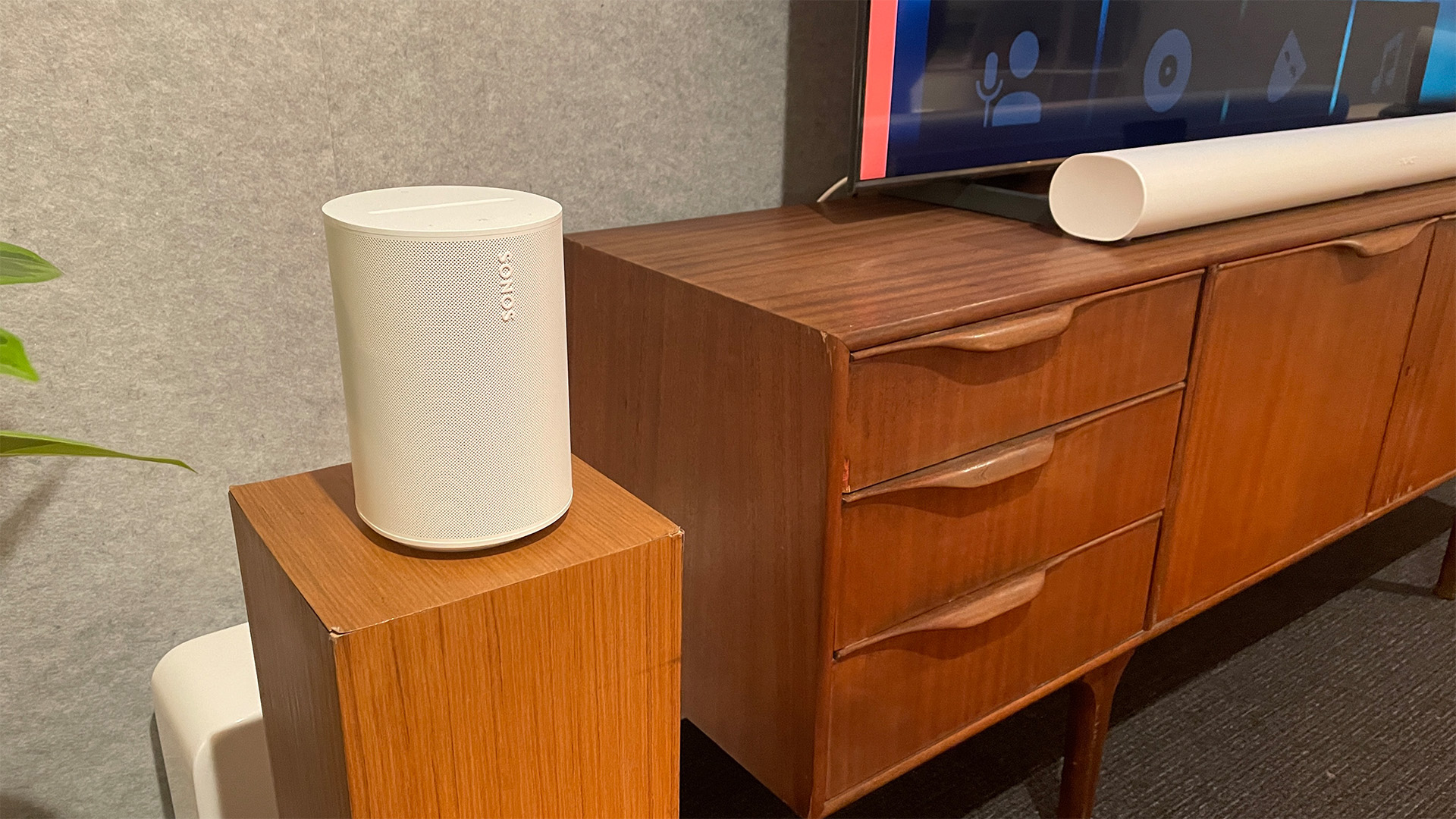
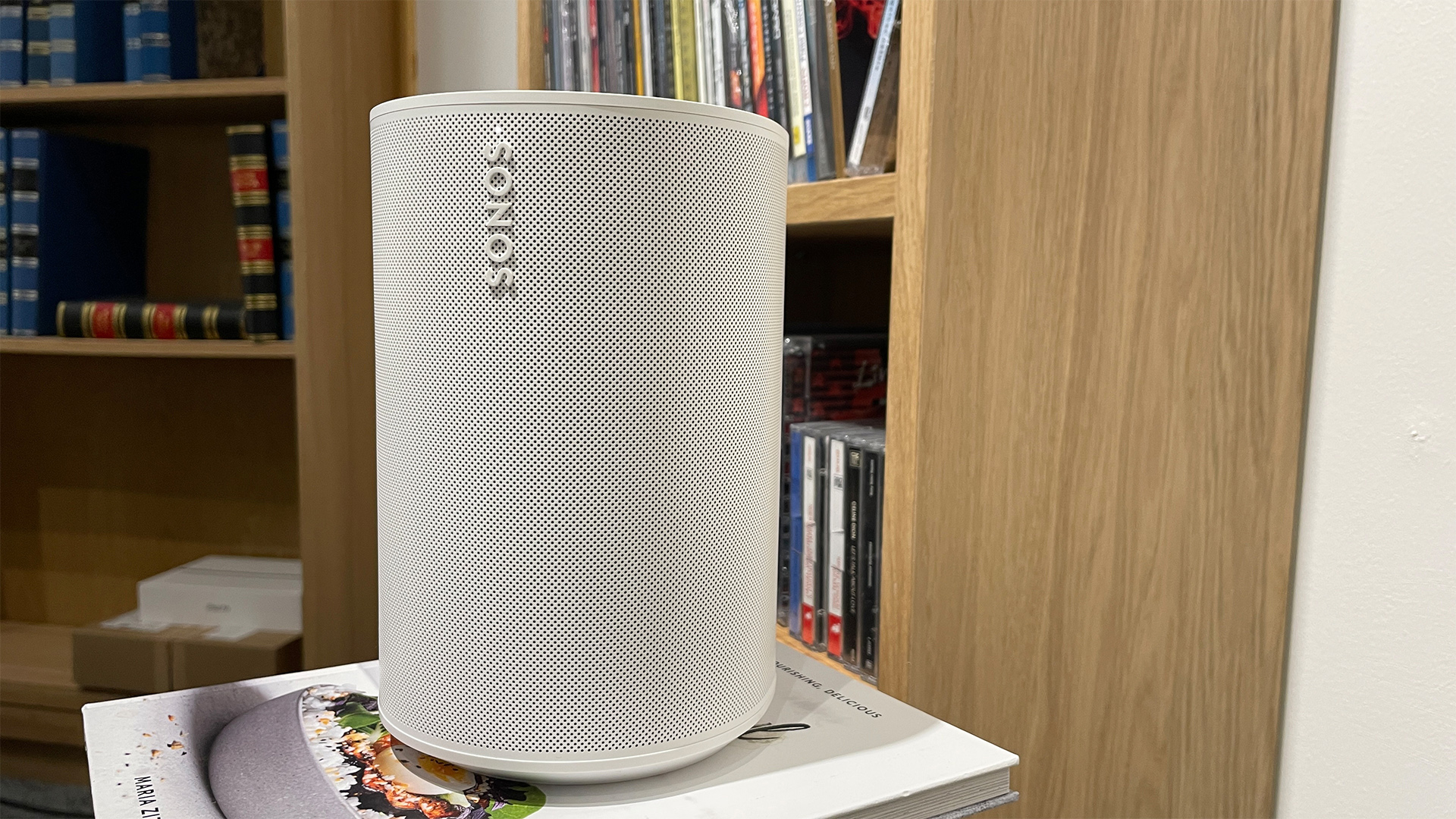
Specifications
Reasons to buy
Reasons to avoid
In terms of overall performance at a competitive price, there are few better smart speakers than the Sonos Era 100. Released as a cheaper, slimmer alternative to the superb Era 300, the Era 100 keeps up with its bigger, more expensive sibling by delivering a host of streaming playback features within a robust, deeply musical speaker. Most of the same smart capabilities are on display here, too, and while Google Assistant has been officially dropped, Sonos's voice control and Amazon Alexa are here to take over such duties.
If you’re not keen on splashing a lot of cash to foot the £449 / $449 / AU$749 asking price for the Era 300, the Era 100 is a great option as a smart home speaker that will suit most needs almost all of the time. The number of streaming features is vast, and everything is as well-made and reliable as you’d expect.
Just like its larger counterpart, the 100 delivers a spacious, open sound, a lovely sense of rhythmic drive and all the detail and precision you could hope for considering the money paid. As we said in our review: "There’s an ease with which Sonos delivers every track we play through it. It never feels dull or distant, nor does it try to attract your attention unduly; this is an overall pleasing sound that is comfortable to listen to for hours". Nice.
No, we’re not exactly happy to be spending extra money for a dongle to allow a wired connection, and the HomePod makes voices sound a touch more natural, but if you’re still happy to spend a decent amount without making as much of a dent in your funds as the 300, the Era 100 works superbly as a dedicated music player and a clever smart speaker. Job done.
Read our full Sonos Era 100 review
Best smart speaker for spatial audio
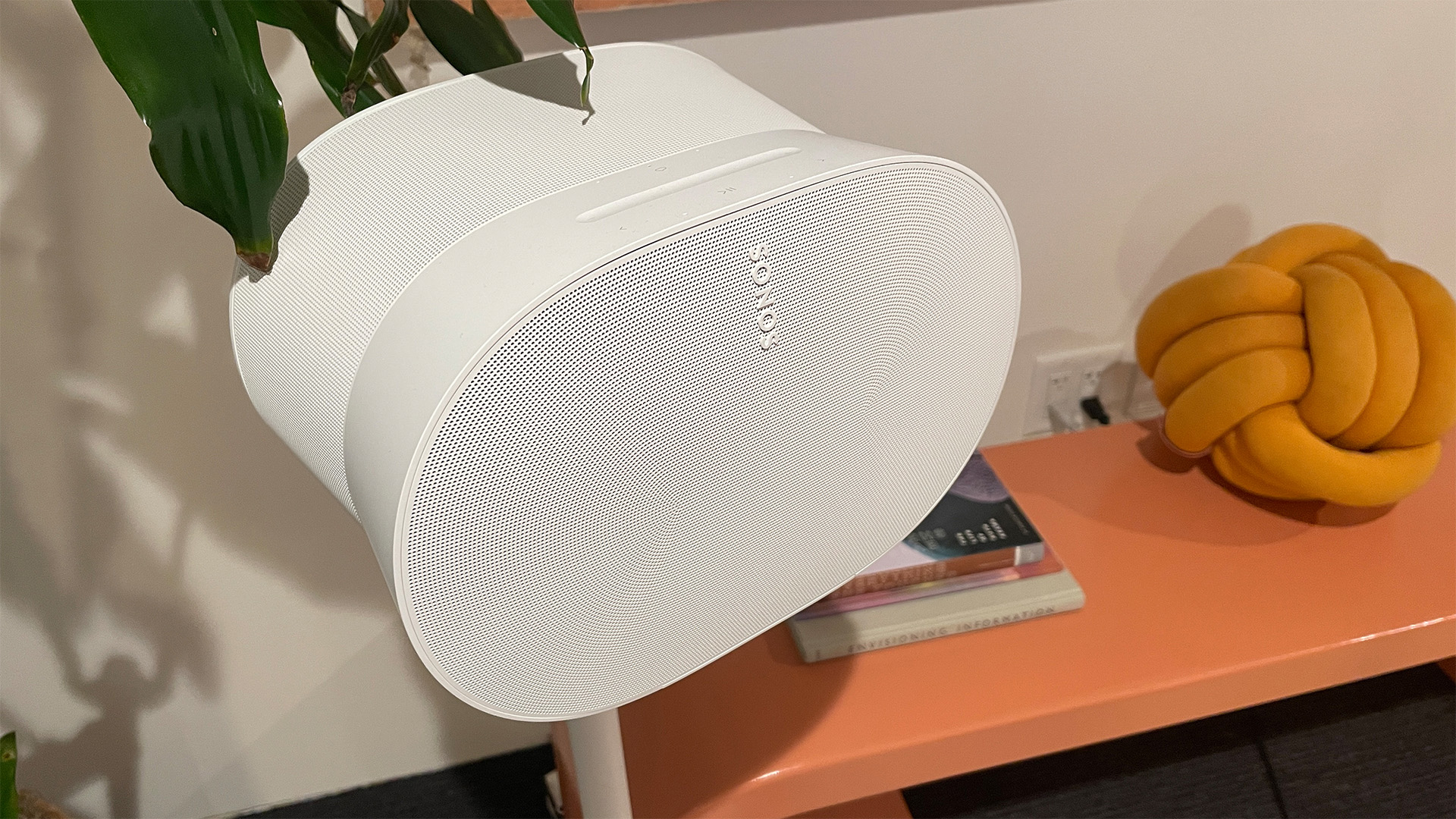
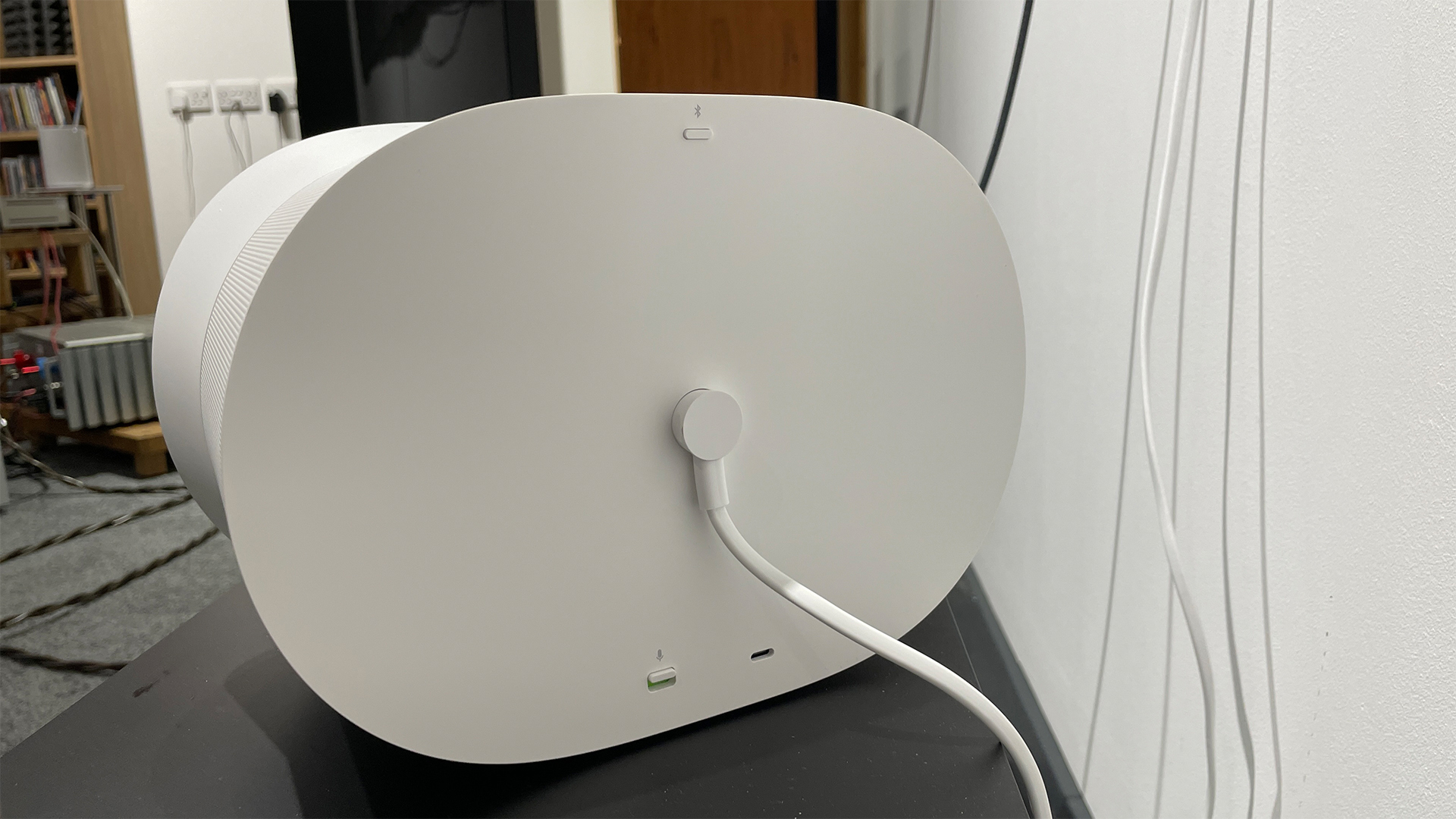
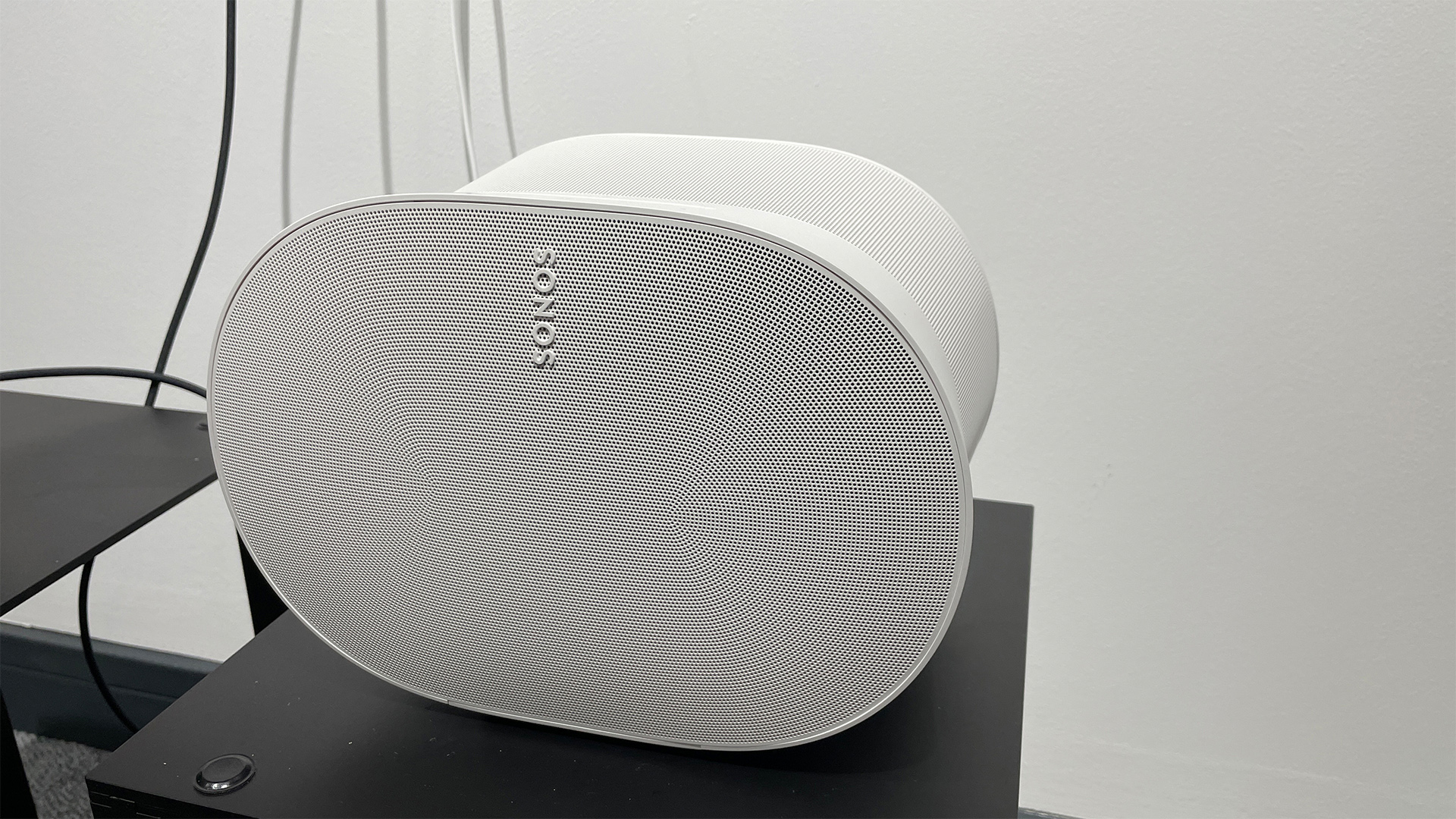
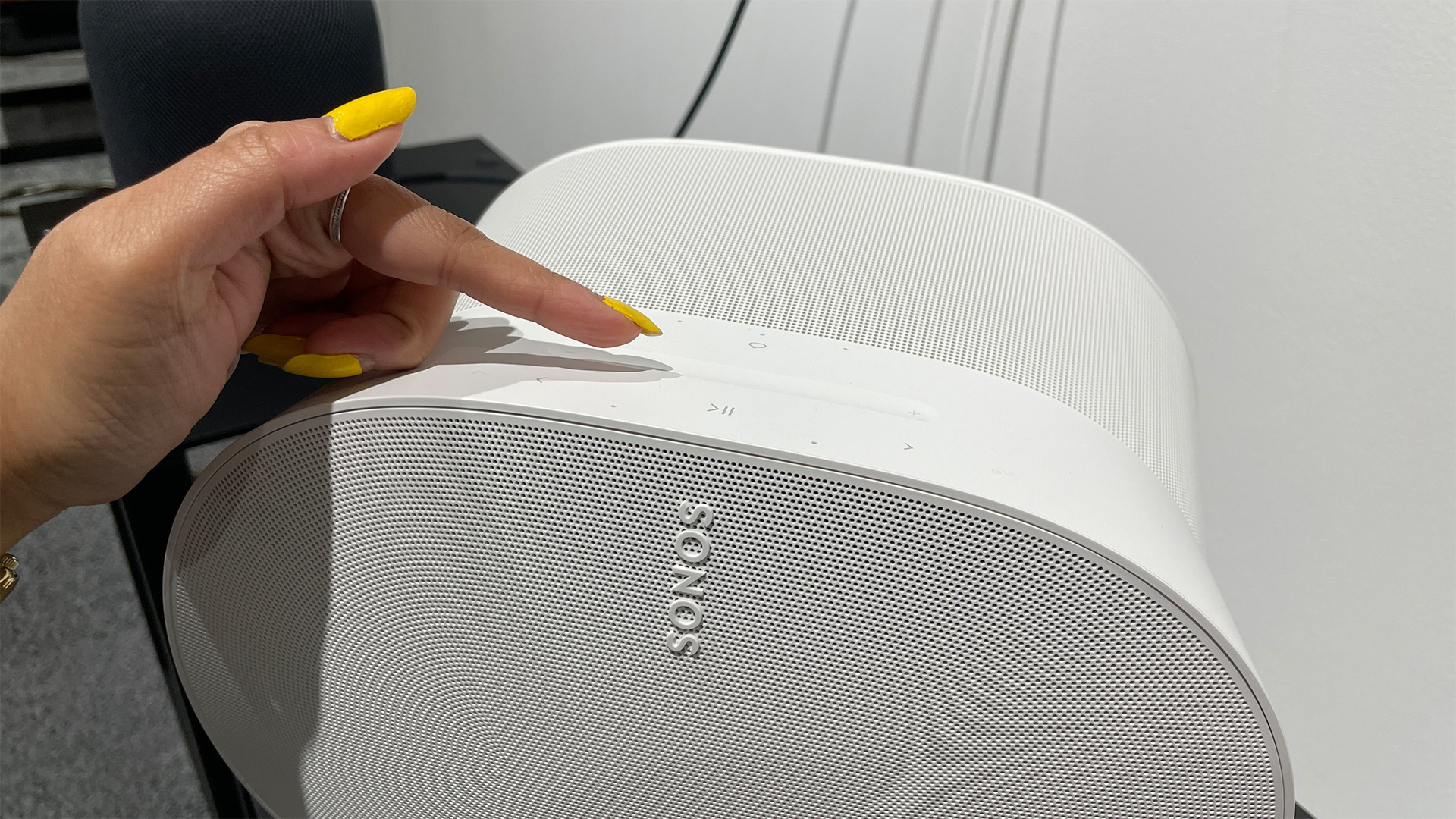
Specifications
Reasons to buy
Reasons to avoid
If home spatial audio is a priority, then smart speakers don't come much more impressive than the Sonos Era 300. With the Era 300, Sonos has delivered a smart speaker capable of voice integration alongside revolutionary sound and an embarrassment of cutting-edge features to rival the best that Apple or other rivals have to offer.
Smart features are courtesy of Amazon Alexa and Sonos voice control, with Google Assistant dropped due to a change in Google’s technical requirements for third-party devices. That's not the greatest loss considering it's never been the most popular AI helper, anyway.
With its unique, “cinched hourglass” shape, there’s no question that the Era 300 is a bit more of an acquired taste than most of the brand’s rather more conservative designs, but what isn't up for debate is how superbly the five-star Era 300 manages to perform. Per our review: "It all sounds detailed, engaging and accomplished, and it’s fun, too".
That fun is key to the Era 300, as is its versatility. The Sonos is a versatile and confident performer, consistently filling our testing rooms with cohesive, spacious sound across a swathe of genres. Big choral numbers feel broad and immersive thanks to spatial audio (although there's no support for Dolby Atmos on Tidal yet), but the Era 300 excels across hip-hop, classic rock, movie soundtracks and more. Yes, it’s expensive and yes, it smacks of a rip-off having to pay extra for a wired connector, but the Era 300 has earned the right to be so impertinent.
A five-star performer and one of the best smart speakers you could hope to find, especially if you're mad about spatial audio.
Read our full Sonos Era 300 review

You're probably looking at the Sonos Era 100 and the Era 300 and wondering which is right for you. That decision will hinge on a few key factors, with price being a major player; the official £449 / $449 / AU$749 of the Era 300 is a substantial sum and a large increase on the £249 / $249 / AU$399 you'll have to pay for the Era 100 when at full price. That said, the larger speaker does boast peerless spatial audio performance, something the Era 100 doesn't have, as well as a broader sound and greater general sonic capabilities. Still, if you just want all those lovely streaming features and a speaker that will slot into your Sonos setup, the Era 100 makes sense as a more budget-friendly option.
Best budget smart speaker
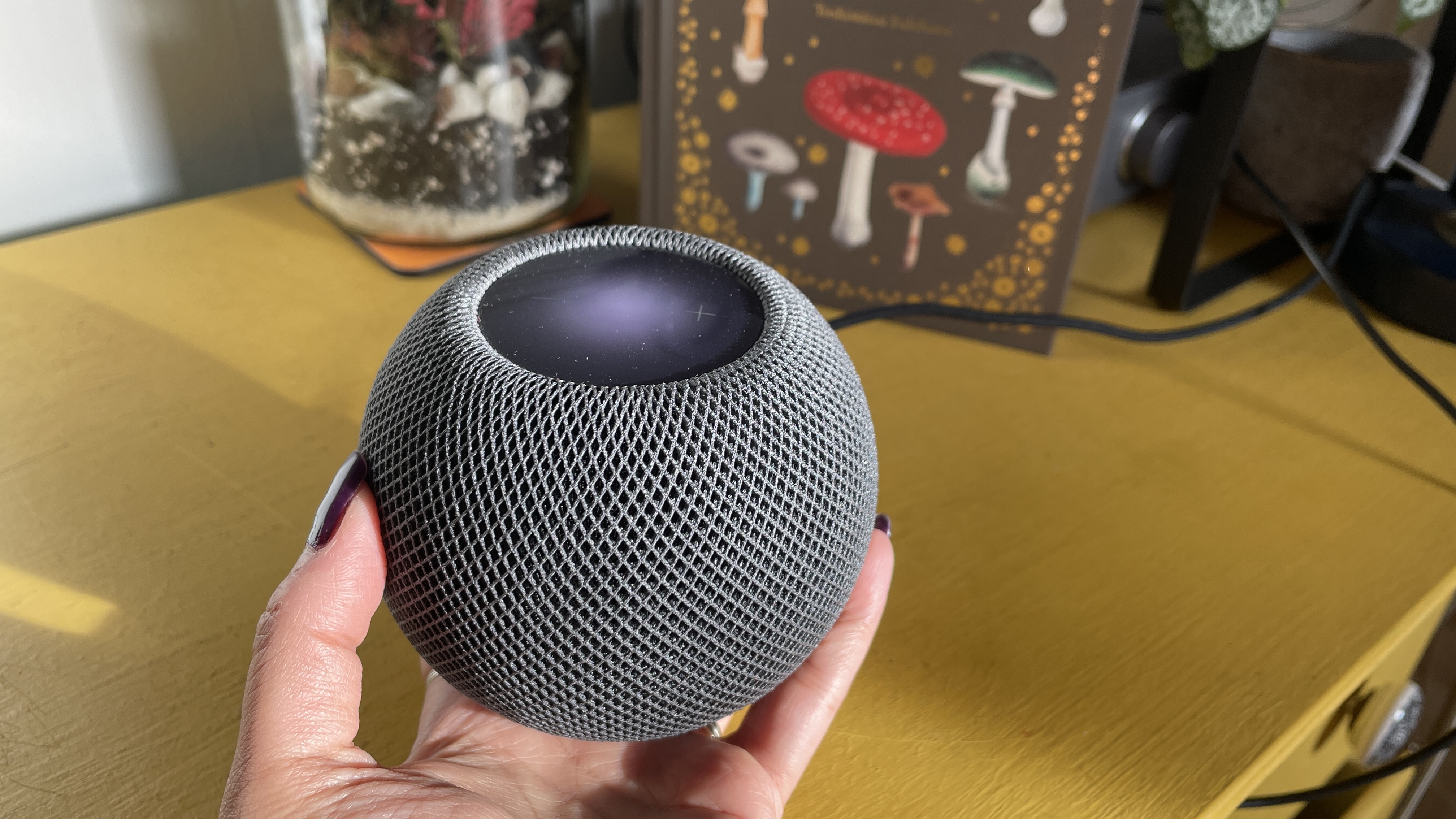
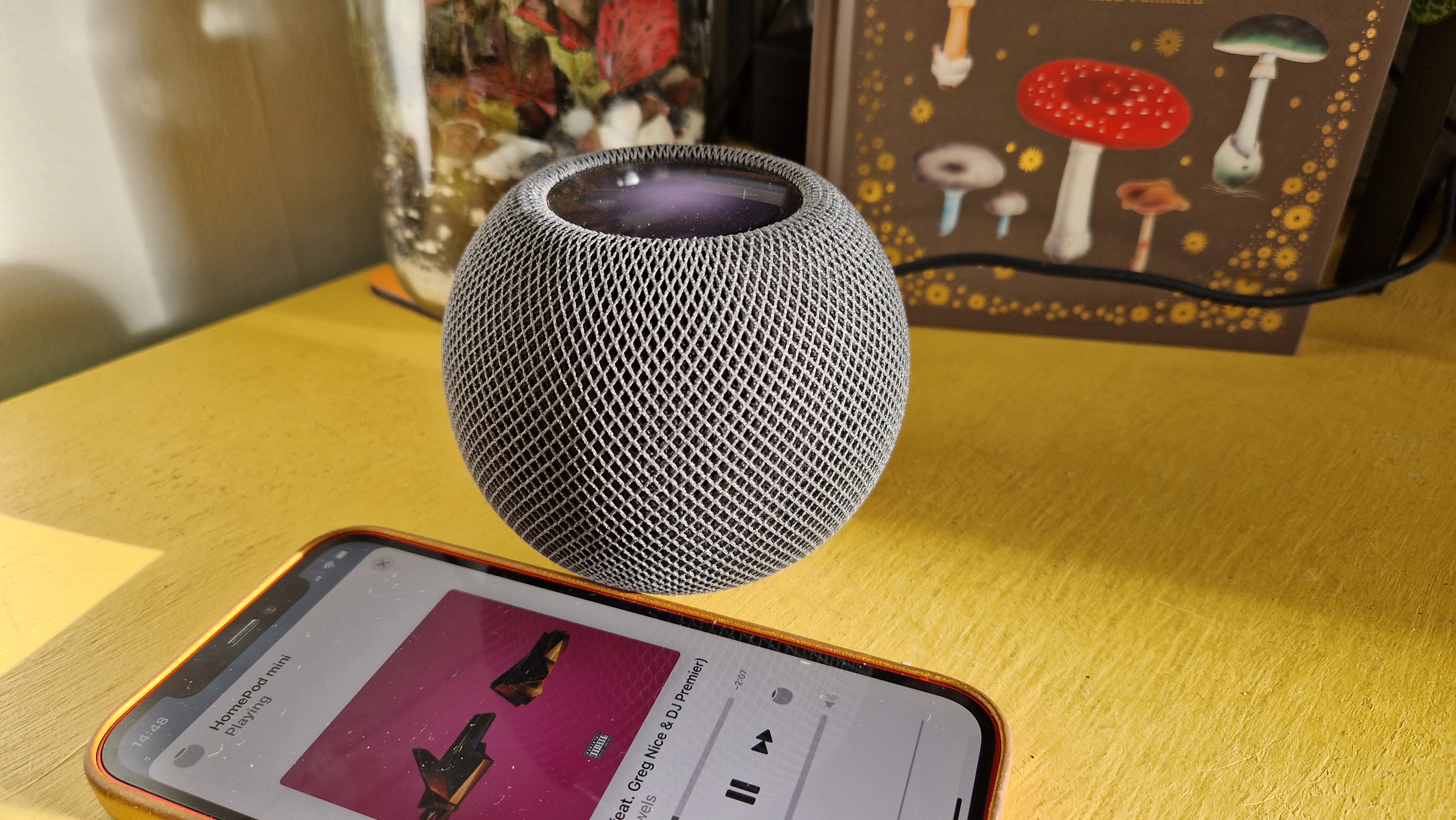
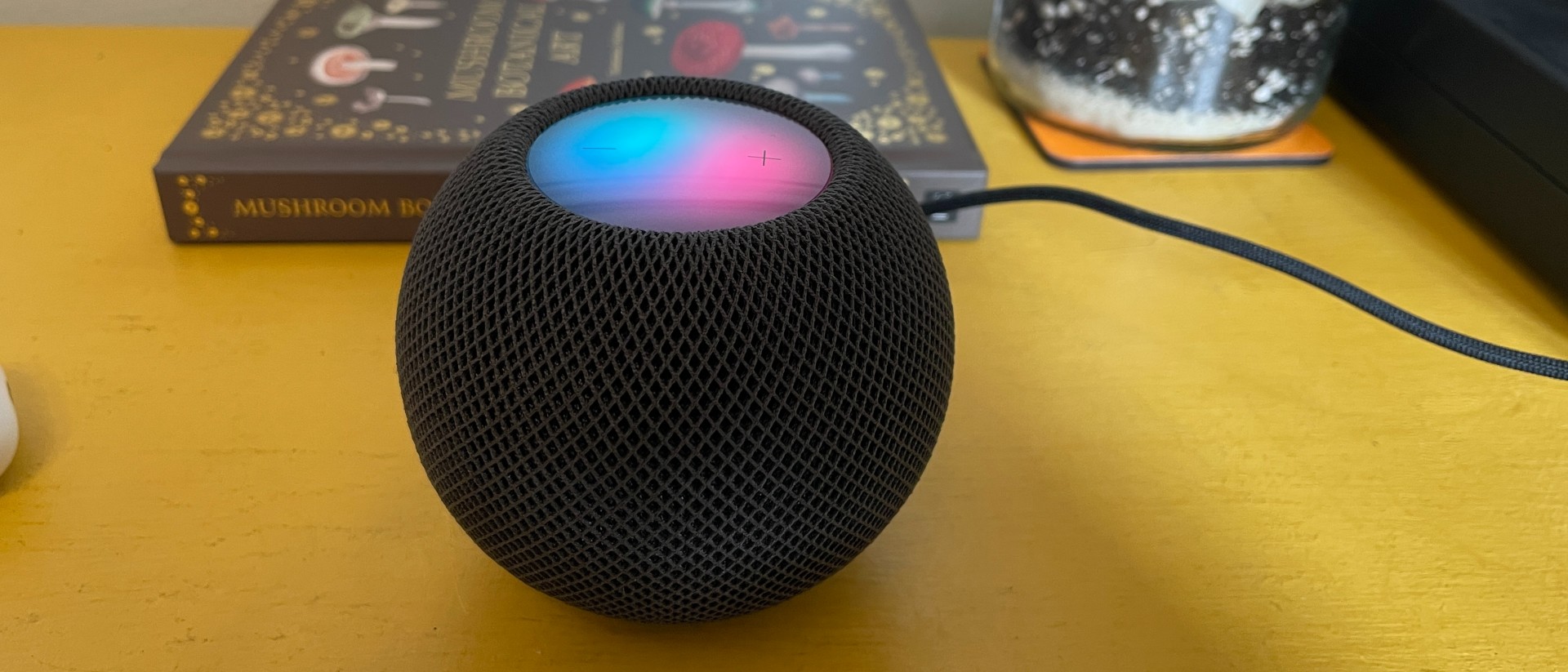
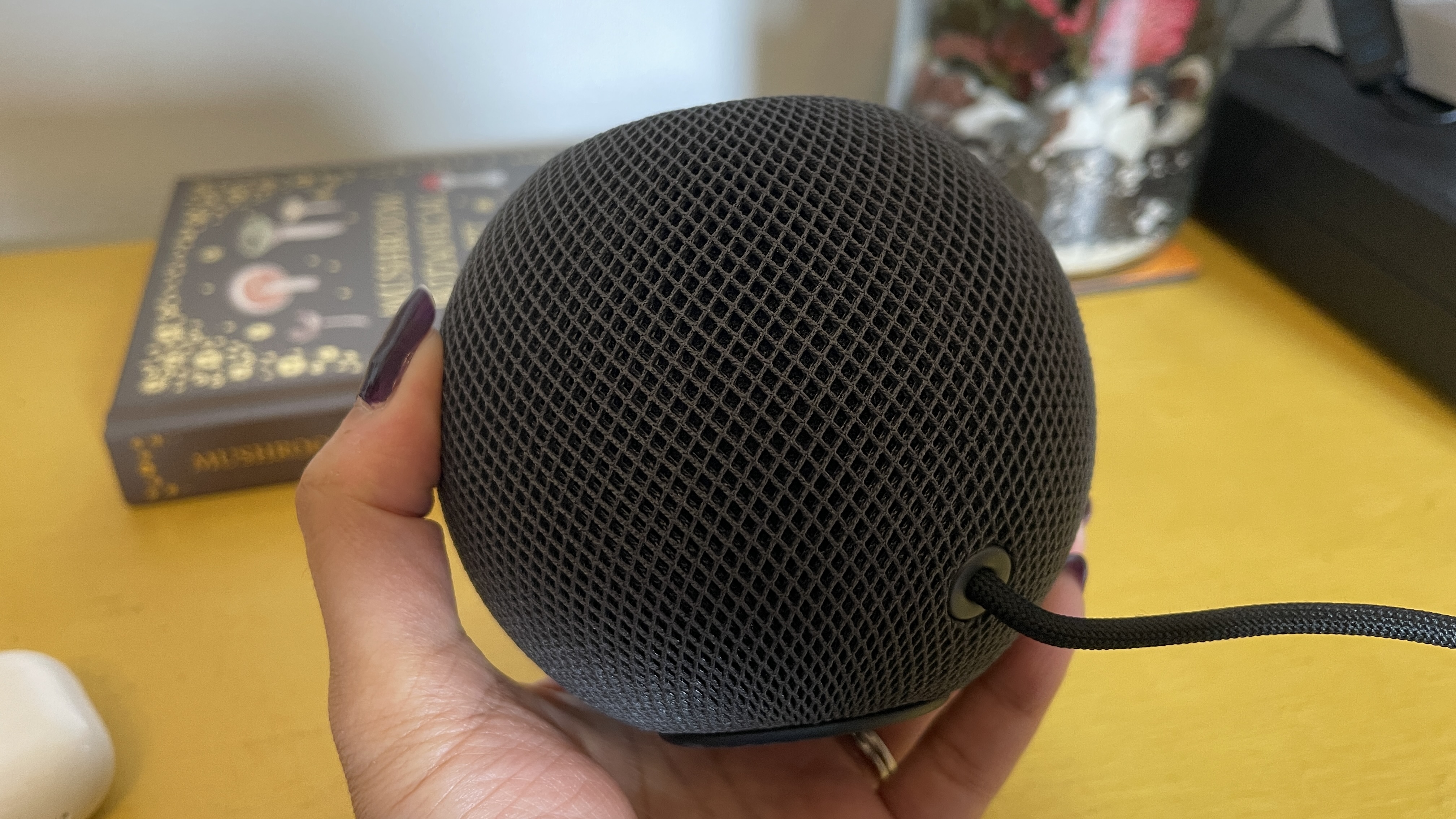
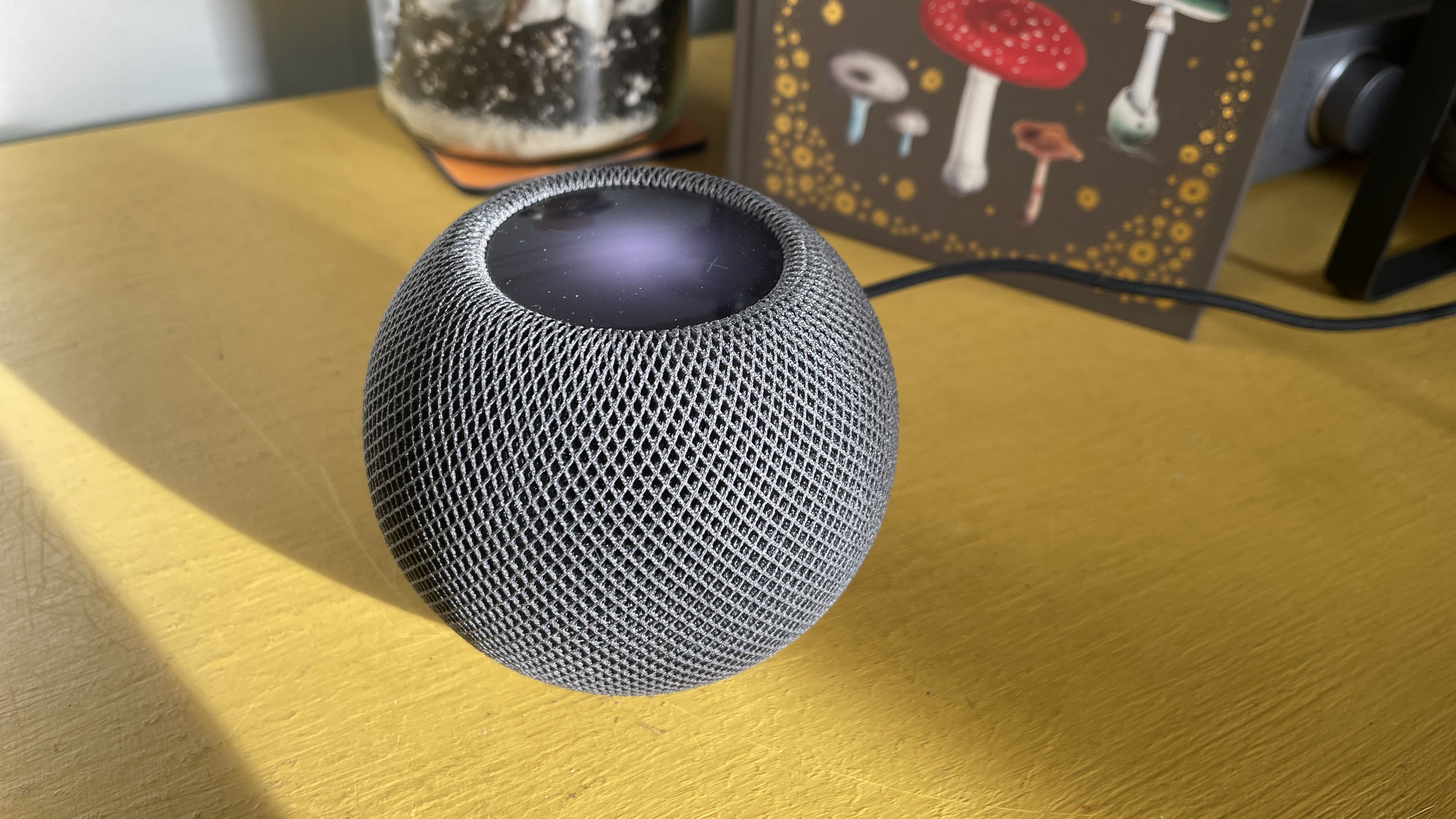
Specifications
Reasons to buy
Reasons to avoid
If the HomePod 2 (below) is too big and expensive for your needs but you love the idea of an Apple-made smart speaker that will fit perfectly into your iOS-oriented ecosystem, the HomePod Mini is your best bet.
At just 8.4cm tall and 9.8cm wide, it’s quite a bit smaller than the similarly spherical Amazon Echo, but it certainly doesn't lack power. Get its swirling orb of coloured light up and running to signify that Siri is listening or processing and you're in for a real sonic surprise.
Siri, of course, is your voice assistant, and after a short period of learning it'll respond to the phrase “Hey Siri, play something I'll like” not by streaming your most played track of the last few weeks, but by playing something that you probably haven't heard before but which has been curated to fit in with your current tastes and habits. As a powerful way to discover new music, it's fantastic, and Alexa simply isn't as good at it.
The HomePod Mini goes loud, too. From the moment we start playing music, it’s clear that the Mini is happy to outperform its size and price, impressing us with the organisation and maturity of its bold, assertive sound that, as we stated at the time, "embarrasses its direct competition with the sophistication and maturity of its sound".
Apple products have occasionally laboured under the reputation of being a little overpriced, but the HomePod Mini, hovering around the £100 / $100 mark, actually seems like superb, Award-winning value. Just be aware that there's no dedicated companion app, and you'll only get the most of it if you're committed to the rest of the Apple ecosystem, including Apple Music.
As is the case with the HomePod 2, we're hoping for a new model, Mini or otherwise, to arrive in 2025, but for now, the current Mini makes for a superb budget option. A no-brainer for Apple lovers everywhere.
Read our full Apple HomePod Mini review
Best smart speaker for Alexa
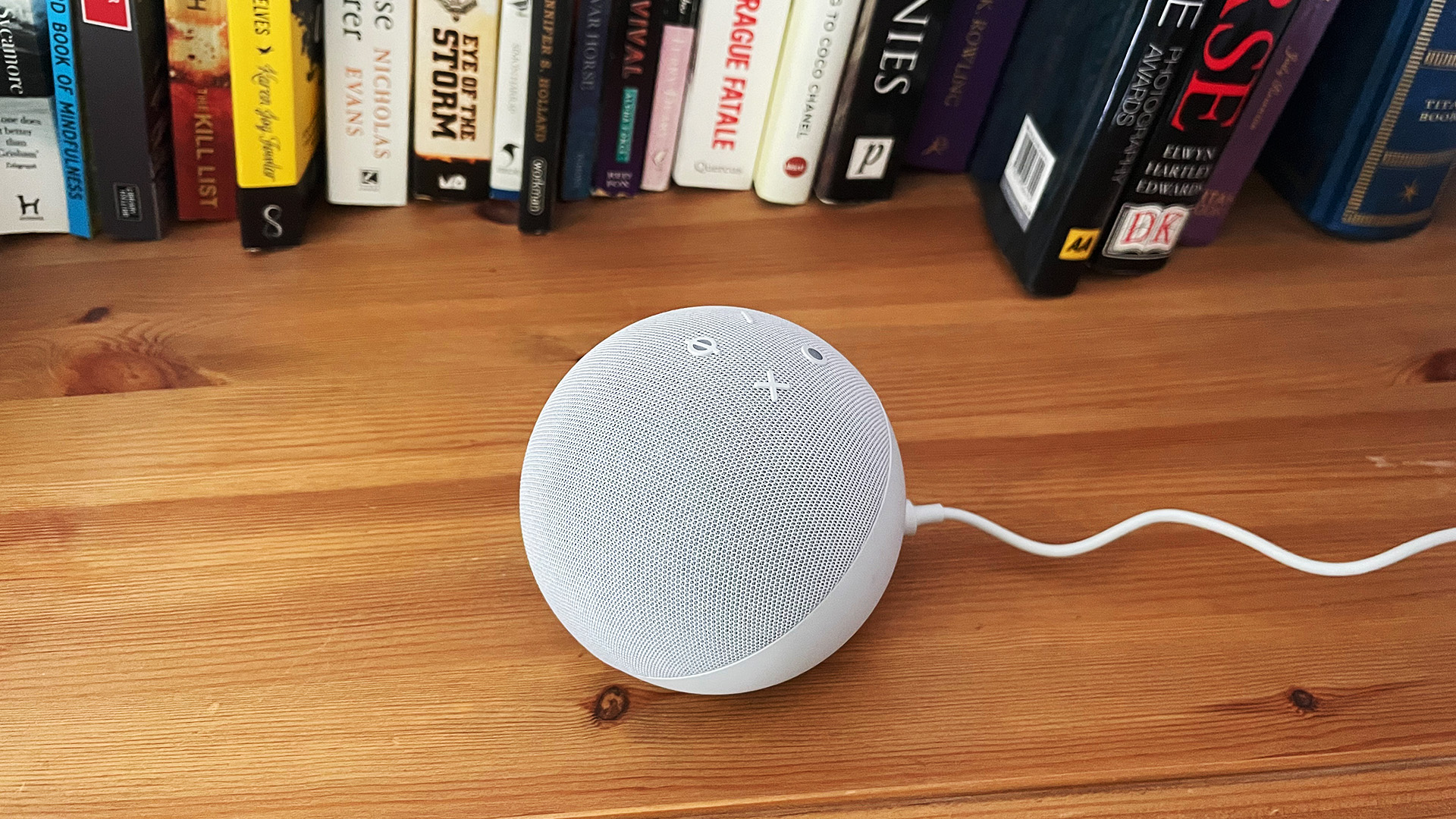
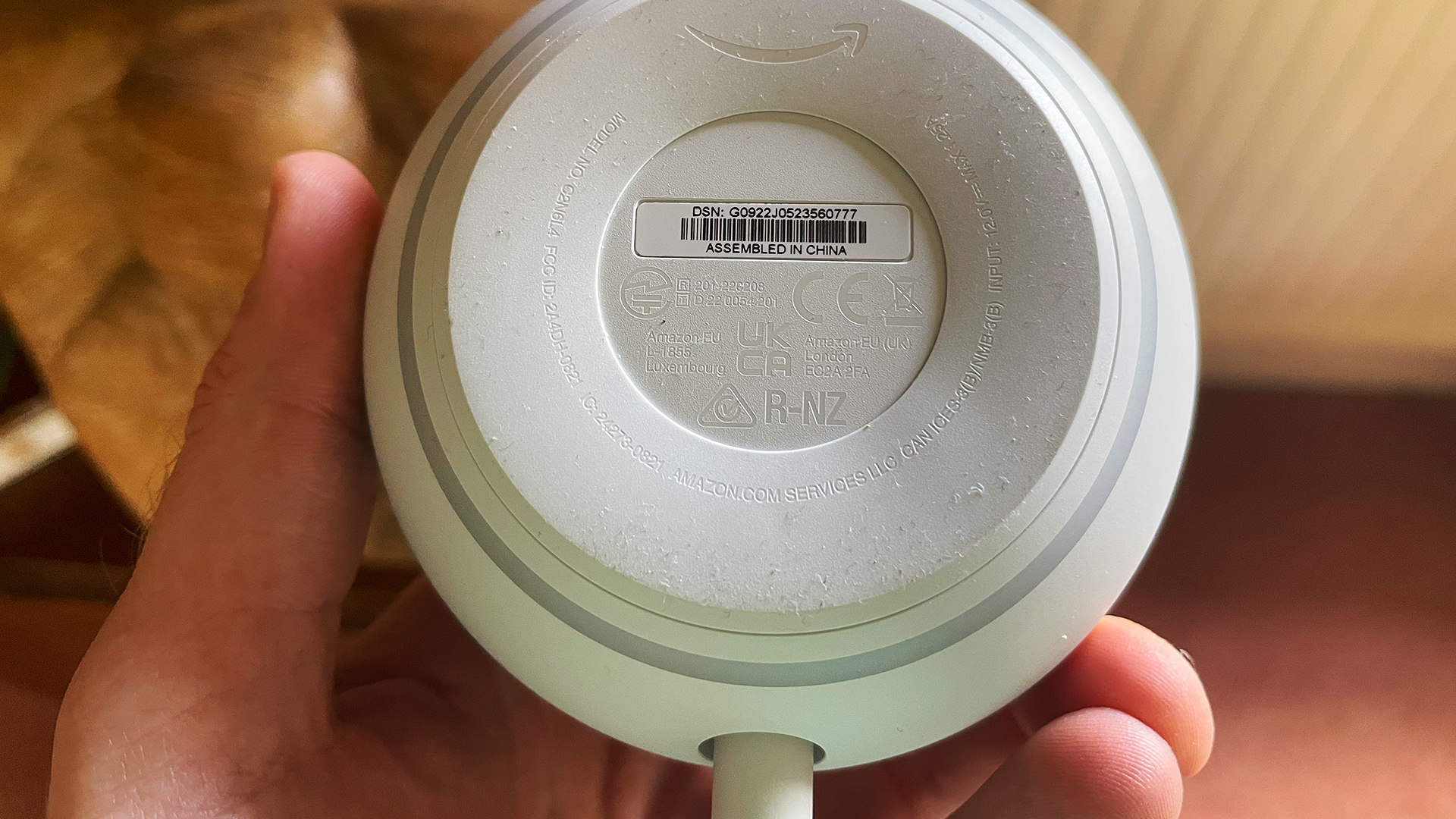
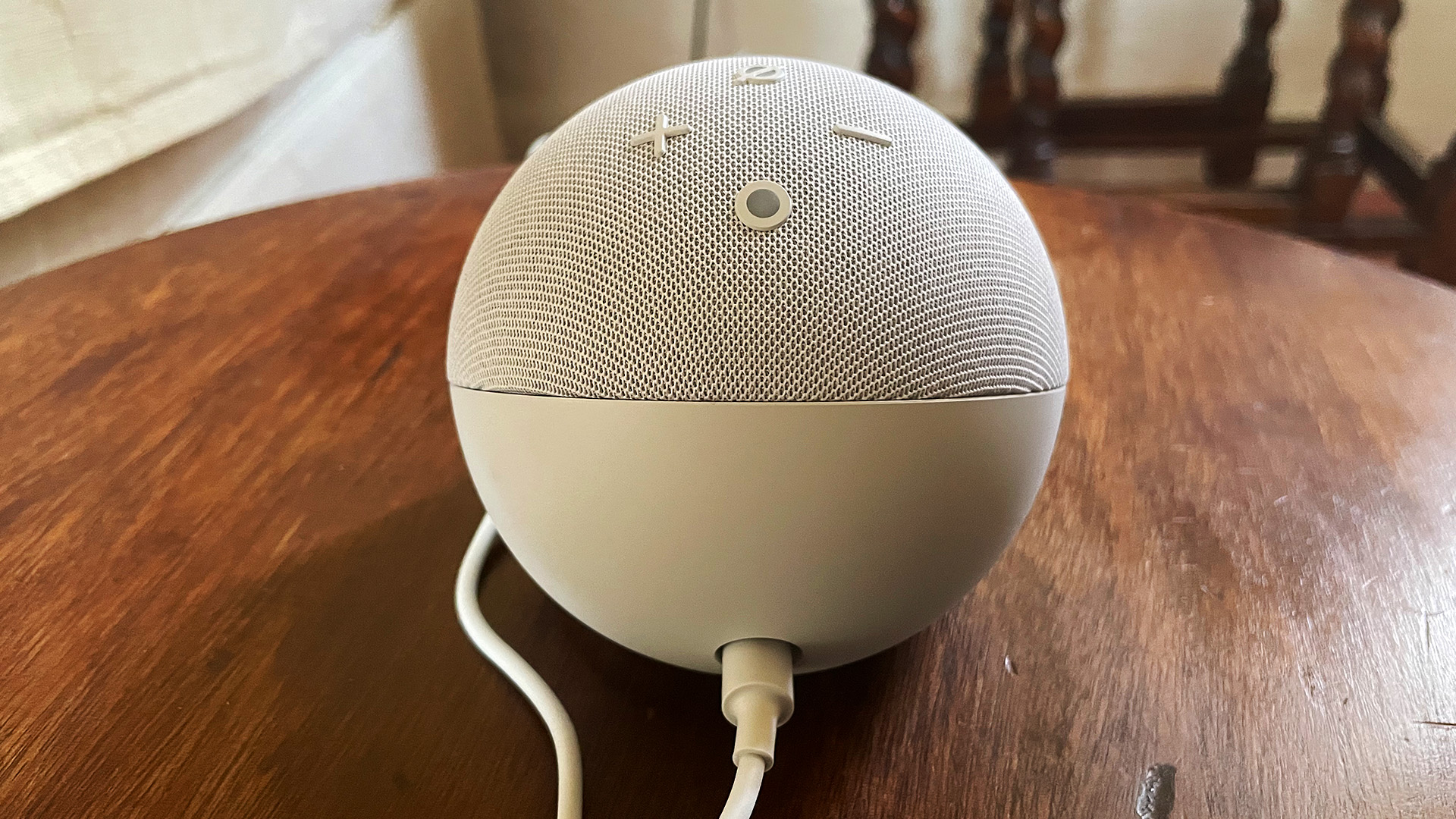
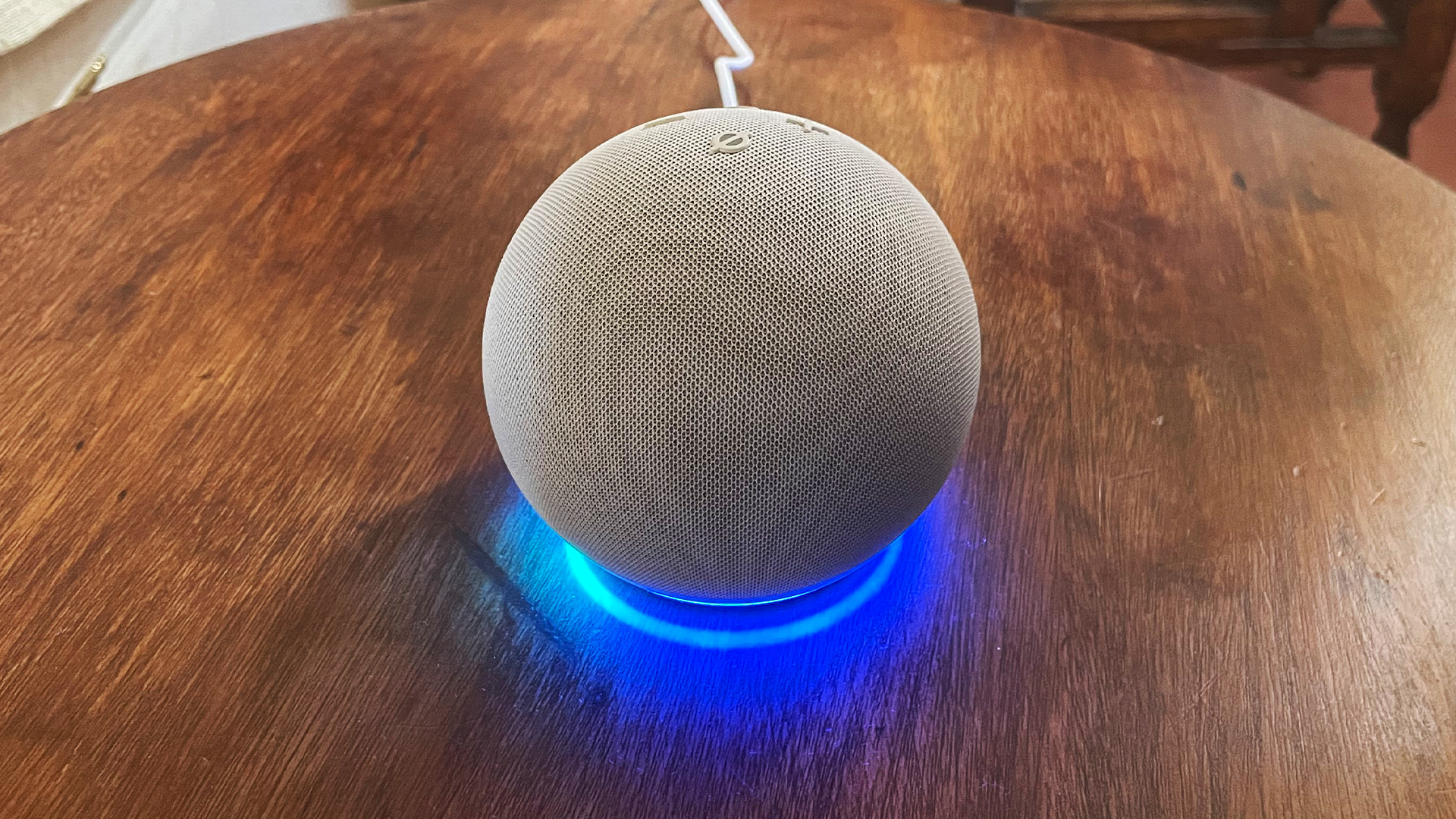
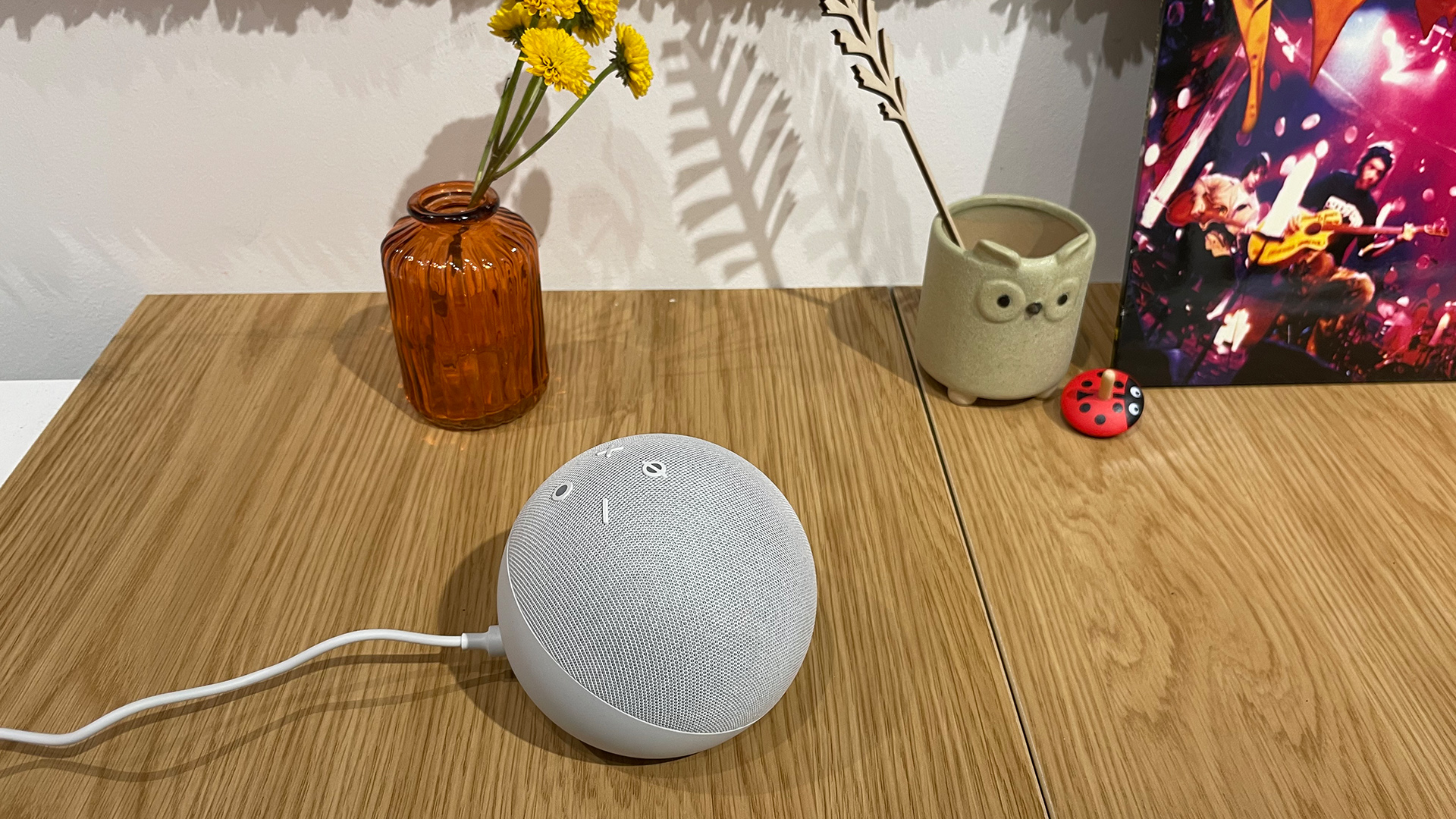
Specifications
Reasons to buy
Reasons to avoid
Love Alexa? We'd heartily recommend the inexpensive and very cheerful fifth generation of the Echo Dot as the direct, if cheaper, rival to the HomePod Mini above.
Amazon's smart speaker range has become big business in the last decade or so, with Alexa now almost synonymous with the whole concept of integrated, domestic AI. The Echo Dot (5th Generation) takes things to new levels, a powerful and clued-up smart speaker that practically gives itself away thanks to its meagre asking price and five-star quality.
Not that the Dot feels cheap - in fact, quite the opposite. Whereas once Alexa was a one-note performer capable of answering basic questions about the weather and or what the capital of Germany is, she's as filled to the brim with knowledge as Stephen Fry after a year in the British Library (with Alexa+ on the way to boost that even further).
The Dot's cybernetic assistant is more helpful than ever before, stuffed with so many tricks and quirks that you'll often find yourself falling into the trap of speaking to Alexa as though it, or rather she, were a real person. You can even use her to play Skyrim, albeit in a strange, truncated form.
Audio has come a long way, too. We weren't mad about the sound of Amazon's early Echo models, but the trajectory has been very much one of continual improvement courtesy of Jeff Bezos' tireless team of audio tinkerers.
Amazon's so-called “best-sounding Echo Dot yet” still distorts if you pump the volume too high, but it lives up to its billing thanks to a single 44mm front-firing speaker (4mm larger than the previous gen’s 40mm). The result? A sound that, as our review surmised, is "peppy, robust and often genuinely musical from a small unit at an even smaller price".
Read our full Amazon Echo Dot (5th Generation) review
Best portable smart speaker
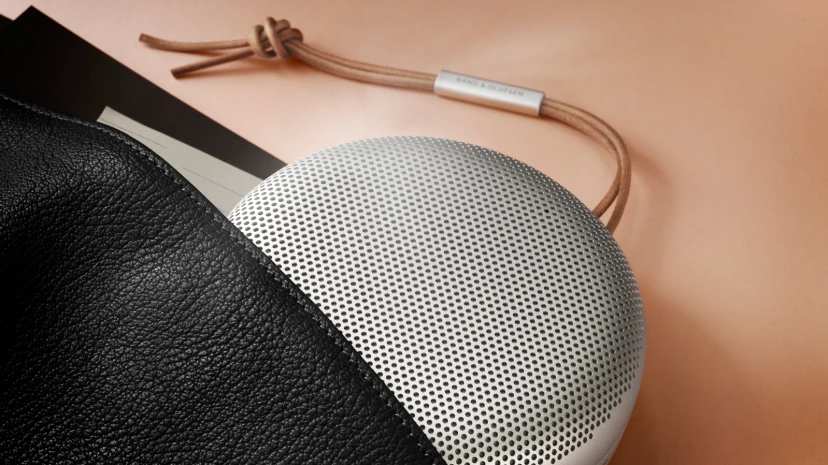
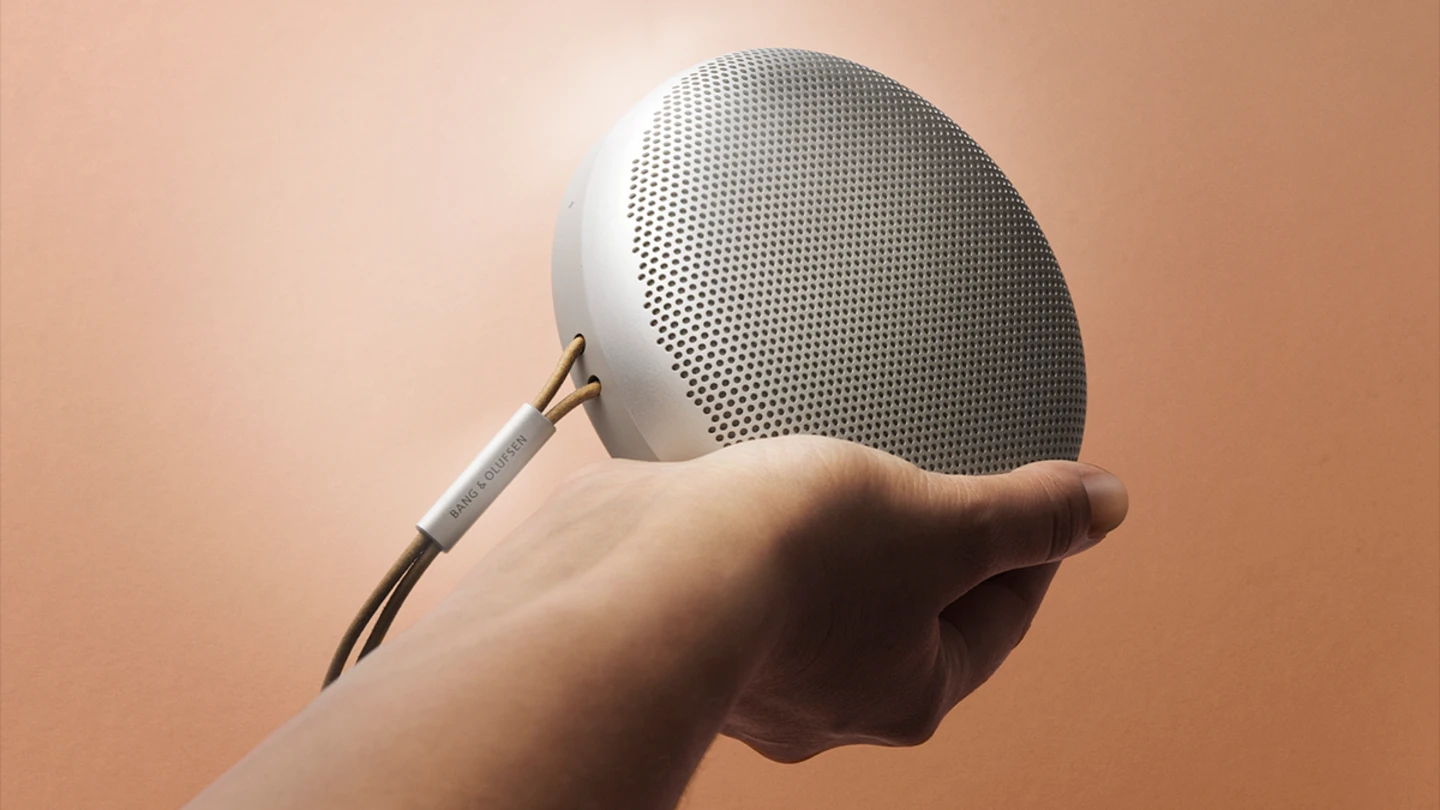
Specifications
Reasons to buy
Reasons to avoid
When we reviewed it a few years ago, we dubbed the Beosound A1 "the weightiest and most refined little speaker we’d heard in a while", all while praising its "classy, well-made design, easy to use operation and the bonus of Amazon Alexa". Our initial affections, thankfully, haven't changed at all since the Beosound dropped in 2020.
Yes, the hugely impressive Beosound A1 qualifies as a smart speaker, even if you might think it's just a Bluetooth model at first glance. Thanks to its built-in Alexa compatibility and support from Qualcomm’s aptX Adaptive codec, the A1 is a proper smart speaker, something that's made even more remarkable considering how rugged, well-made and superb-sounding this bap-sized wonder is.
Most smart speakers are welded to the mains as part of their nature, but the A1 has Alexa capabilities while also being a well-made and sophisticated piece of portable tech. That's a winning combination in our book.
In fact, the Besound A1 is something of a Jack-of-all-trades, master of many. Sonically, the well-made, hugely attractive unit offers a pleasingly comfortable yet authoritative performance that you'd be happy listening to all day, complimenting your musical catalogue with an expansive, meaty and assertive presentation.
At the higher ends there's very little strain, while an expansive, weighty bass lays the groundwork with ease. Oh, and there's even a convenient strap for ease of transport for what is still a primarily portable unit.
It's expensive, sure, and it's certainly not the newest, but if you have money to spend, the smart Beosound A1 is a rather remarkable all-rounder, and one you'd be happy showing off to your friends.
Read our full Bang & Olufsen Beosound A1 (2nd Gen) review
Best Apple smart speaker
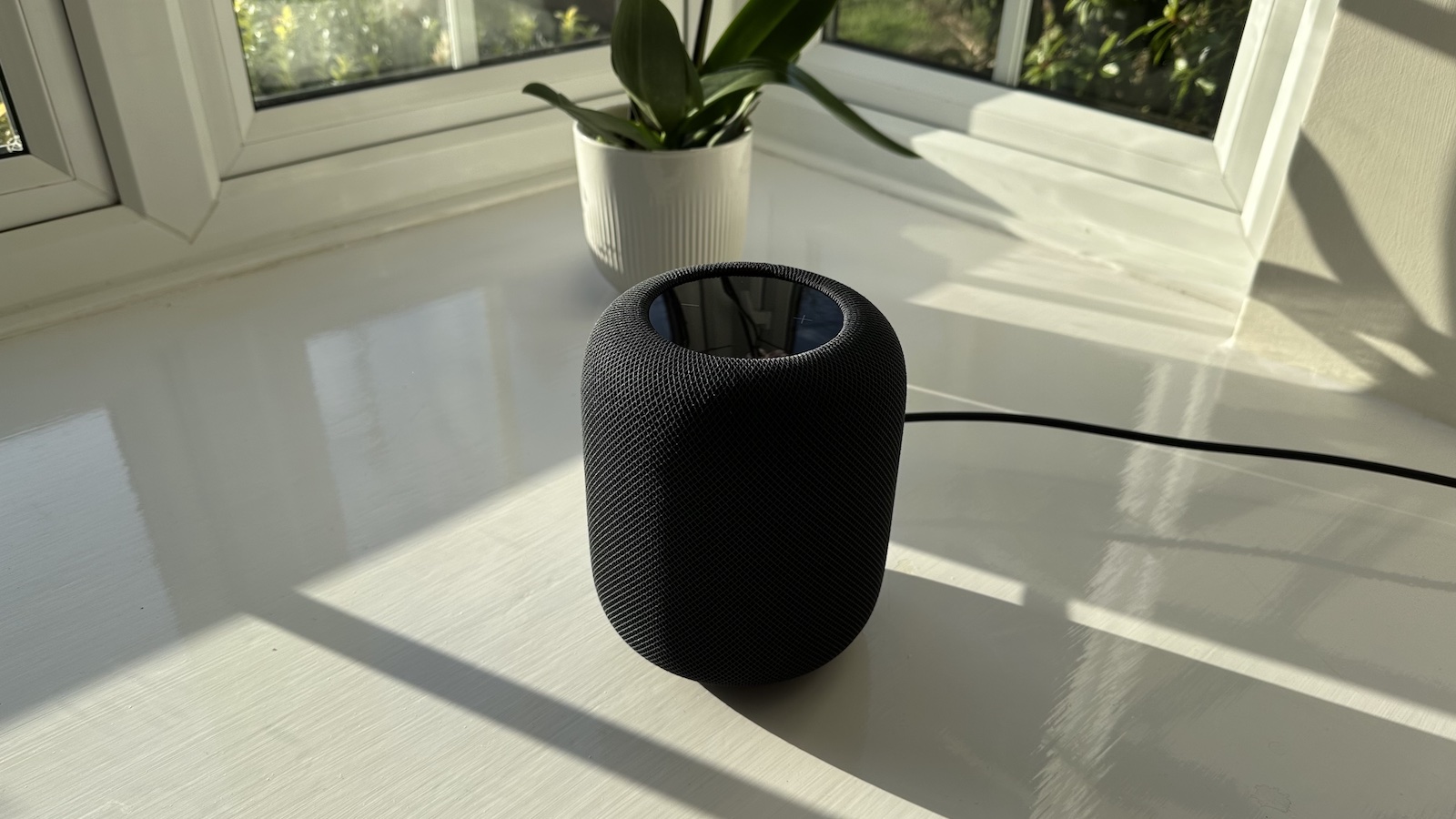
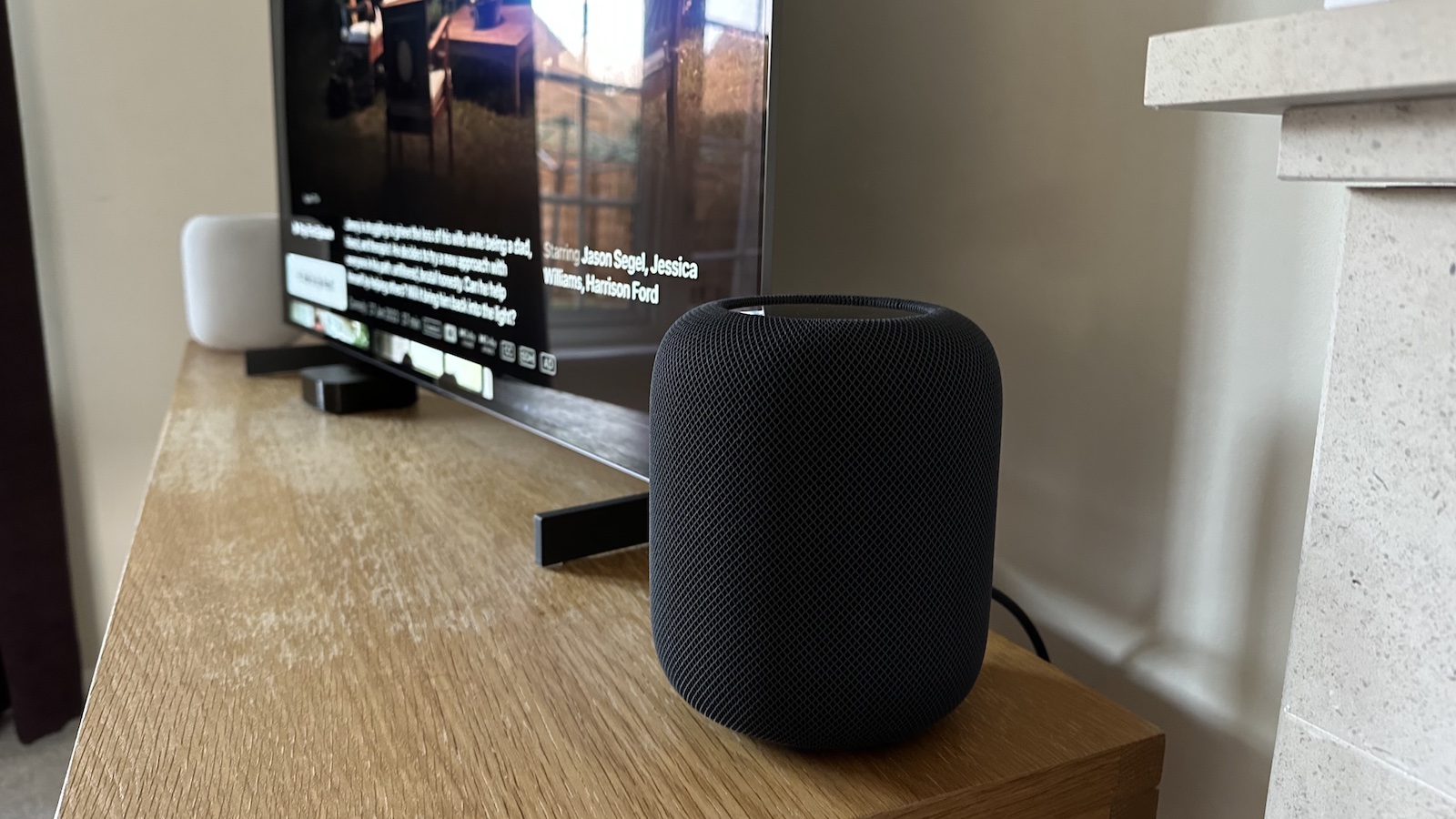
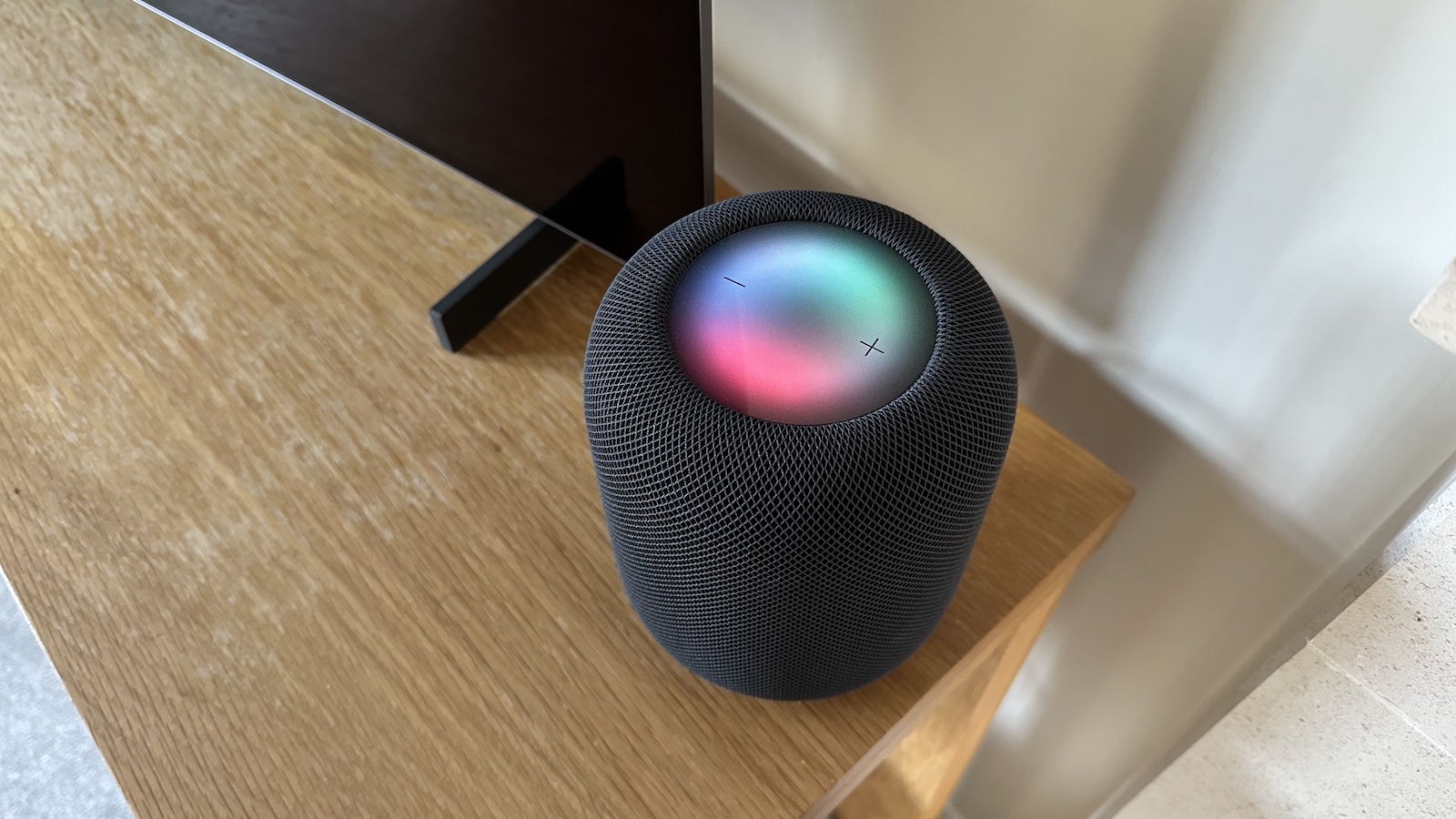
Specifications
Reasons to buy
Reasons to avoid
If you love Apple tech and want a great-sounding smart speaker with room-filling audio, the HomePod 2 is almost certainly the best option we’ve tested, and a fine alternative to the Sonos Era 100 above.
Apple's five-star model is the larger option in the Californian brand's current line-up, sitting above the smaller HomePod Mini in terms of weight and size. It's also one of the finest Apple products around today, even if we're been waiting for a while for a new model to drop. We're supposed to be getting a HomePod with a screen at some point in 2025, but as of yet, there's been no official sighting.
The HomePod 2's main draw is its ability to scan and optimise its audio settings for the room and position it's in on-the-fly, something which worked superbly during our own tests. Picking it from a place in free space and moving it close to a wall, our testers could hear it changing its settings in real time, mainly by reducing unnecessary bass that tends to muddy the sound when it isn't wanted.
We were particularly impressed with how well the HomePod 2 dealt with an Apple Lossless version of SBTRKT’s Trials Of The Past, a taxing track that can often suffer from unwanted sibilance and harshness. No such problems with the HomePod (even if some rivals do sound more direct).
Once set up, the in-built mics and smart features all worked perfectly. Siri universally heard and enacted our voice commands, even while music was playing and we were talking to the speaker from across the room. We were also hugely impressed by the built-in temperature and humidity sensors which can be used to create custom automations using other smart home devices.
From top to bottom, the HomePod 2 is the smart speaker to beat for dedicated Apple acolytes (limited third-party support makes it less suitable for others), and the fact that it's still claiming What Hi-Fi? Awards only testifies to its supreme capabilities.
Read our full Apple HomePod 2 review
Best smart speaker for Google Assistant
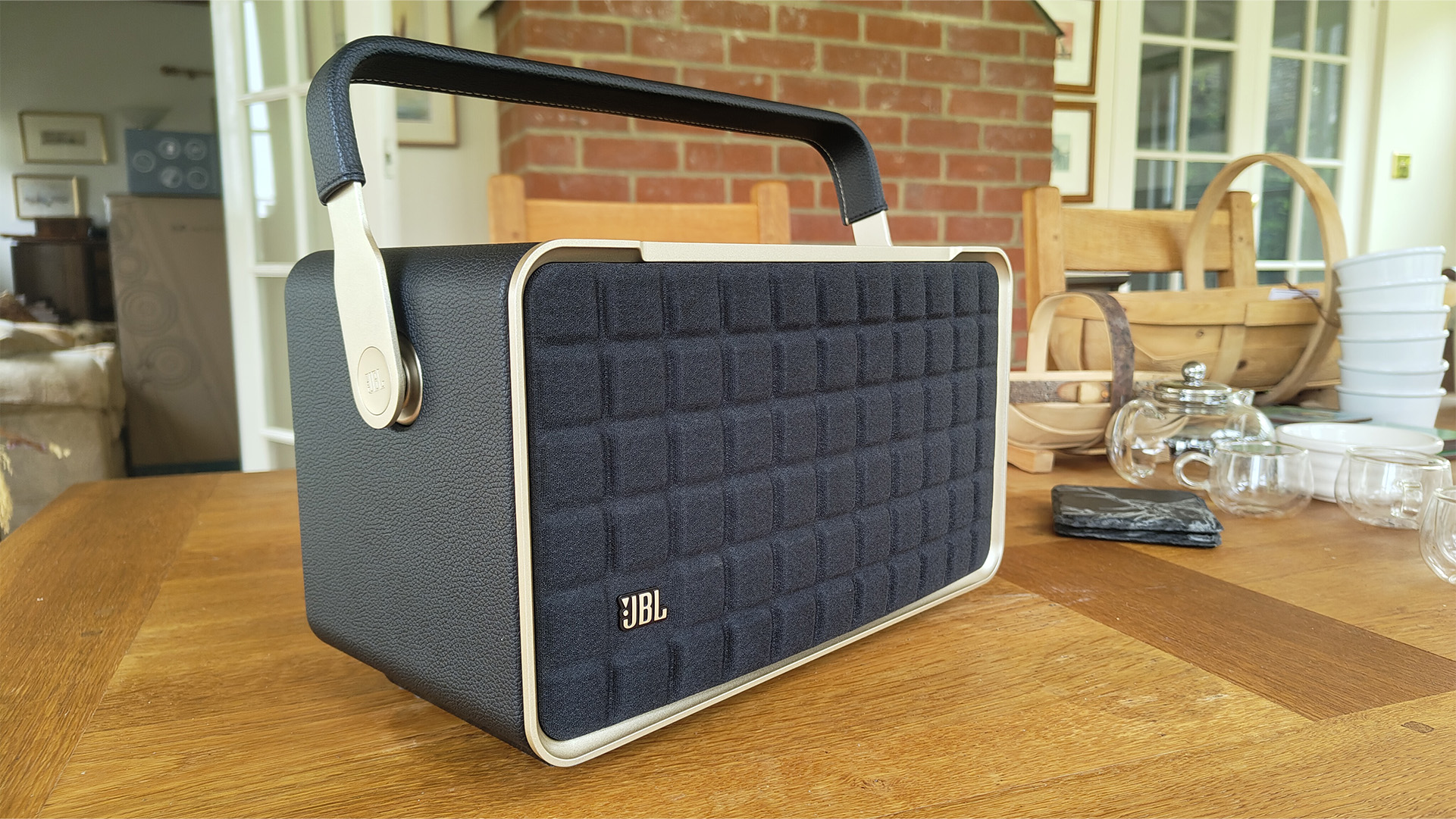
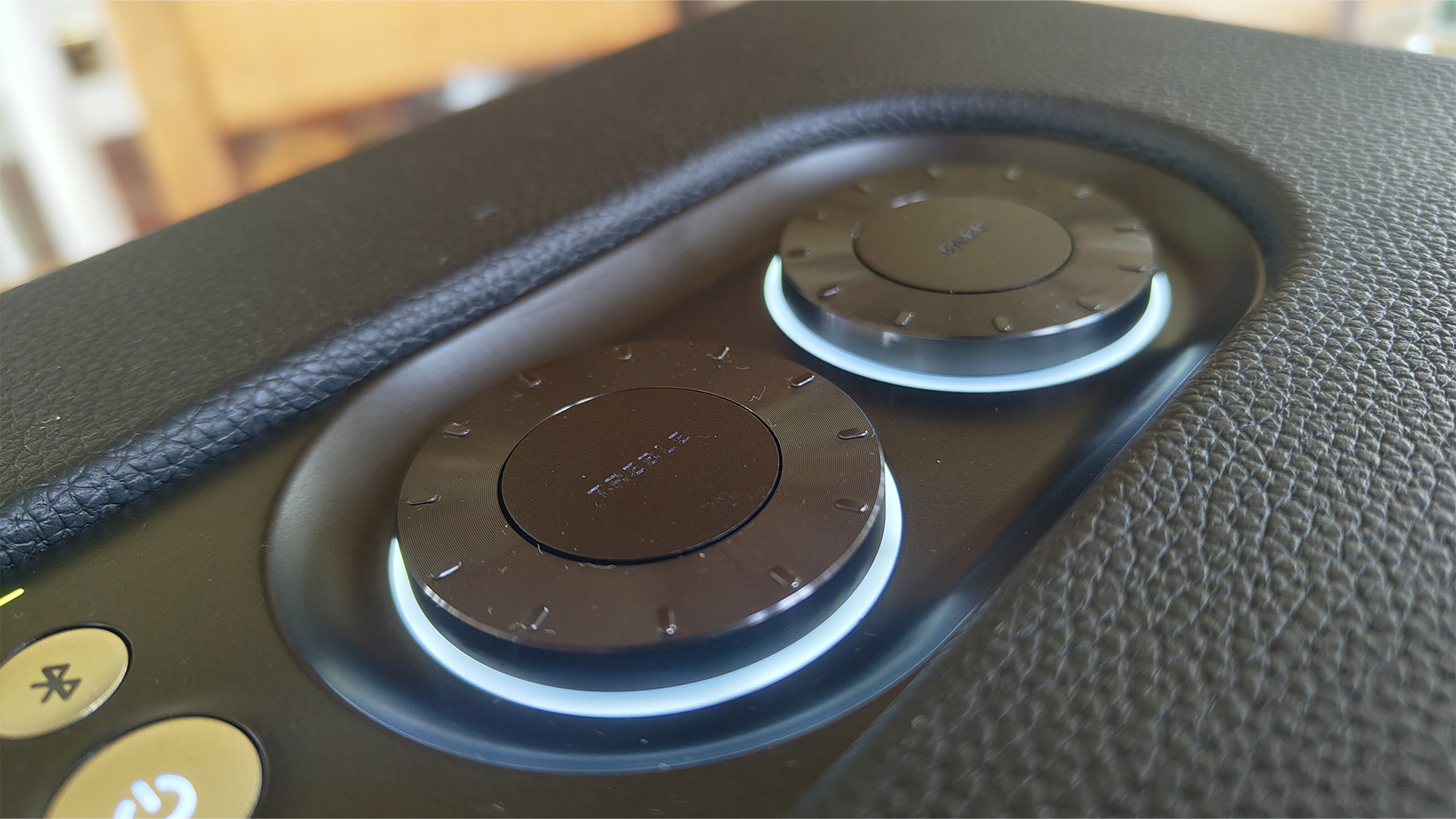
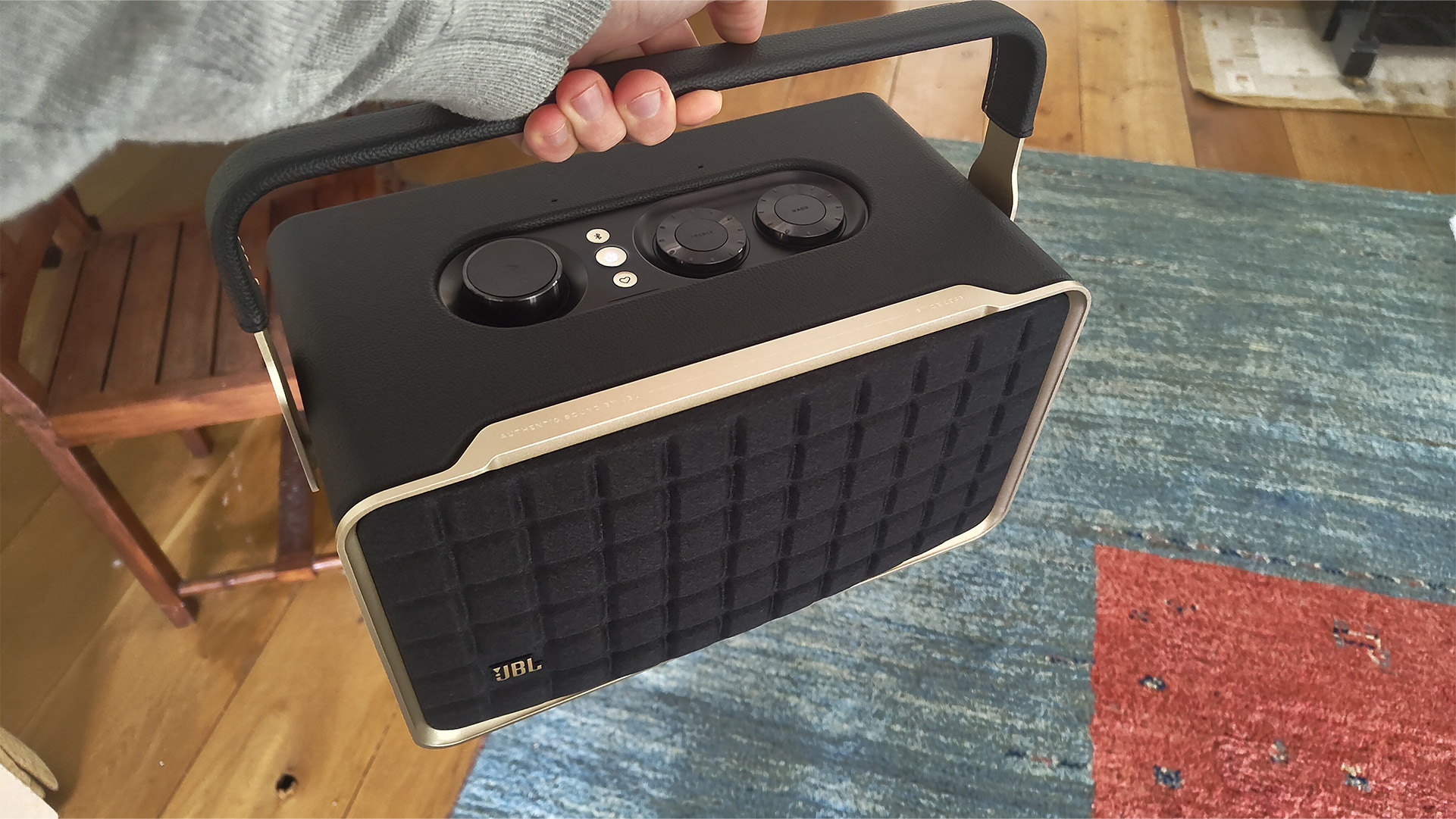
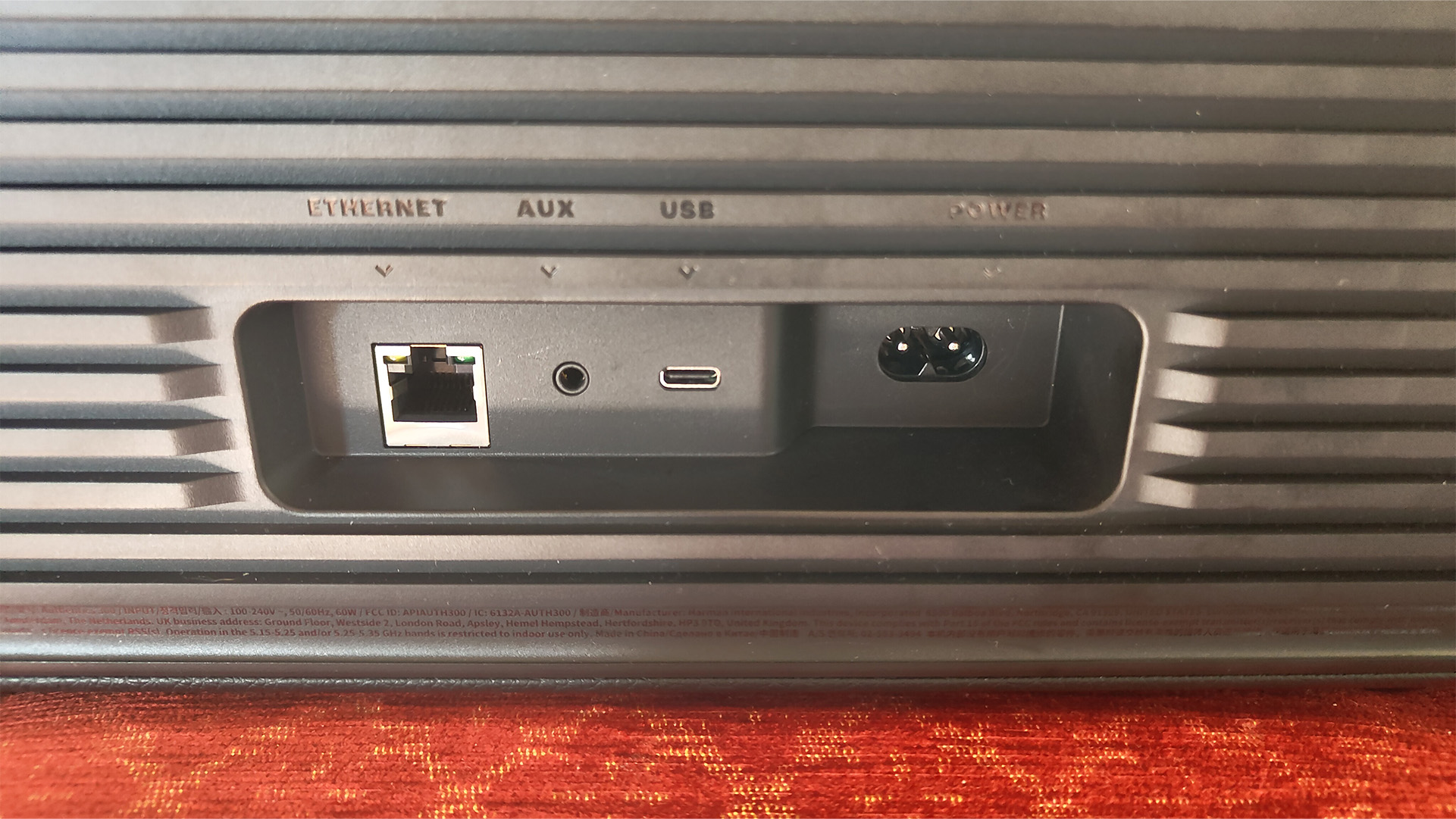
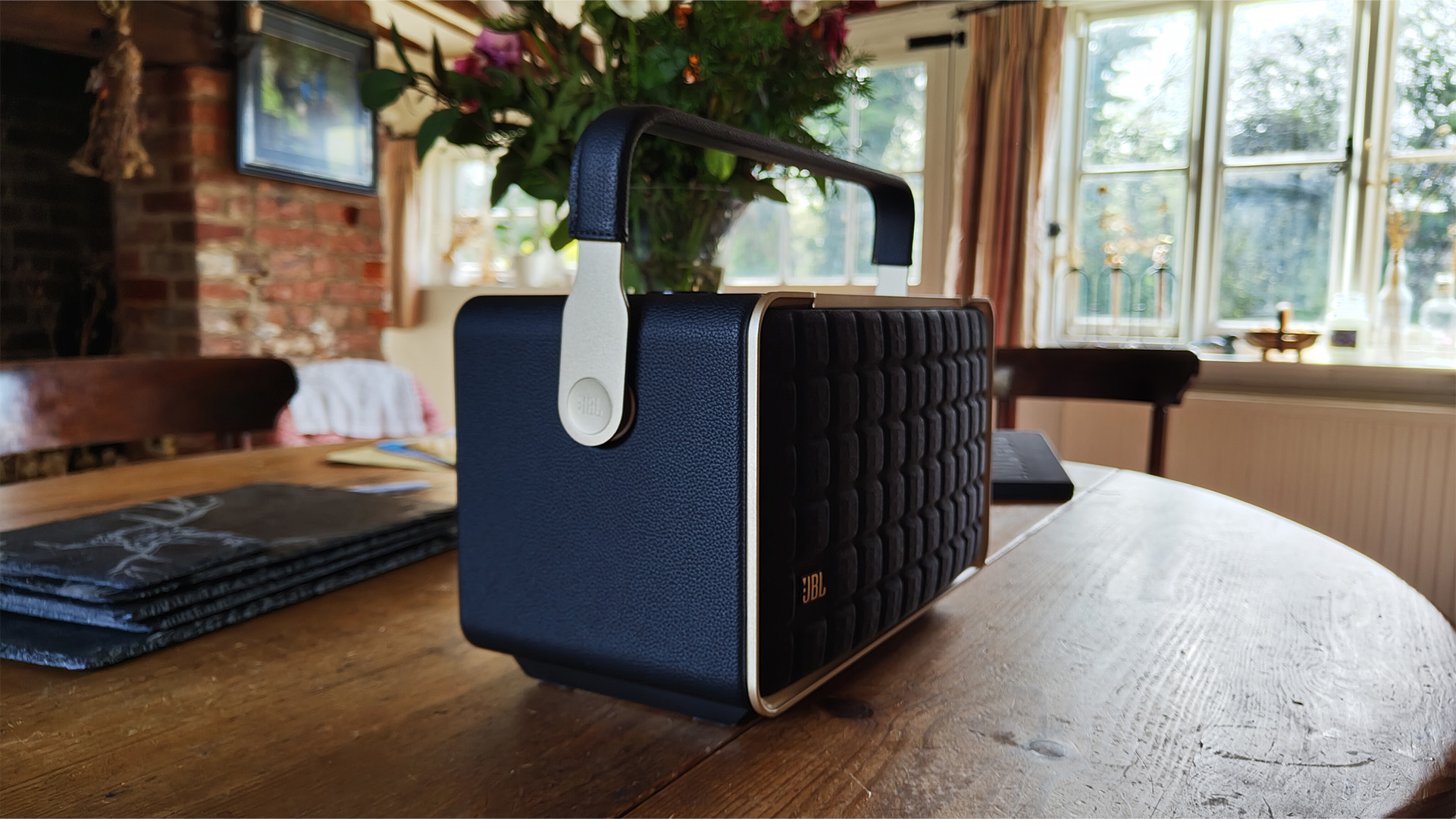
Specifications
Reasons to buy
Reasons to avoid
Alexa is by far the most common voice assistant when it comes to smart speakers, but if you’re more Google than Amazon there’s a lot to like about the JBL Authentics 300, not least the fact that it actually supports both. It’s not necessary to choose which one you want to use, it’ll automatically respond to requests directed at either, with both responding equally eagerly.
Retro designs aren’t to everybody’s tastes, but it’s hard to deny the appeal of the Authentics 300. The chunky controls on top could feel a bit nicer to twiddle, but on the whole we’re big fans of its waffle-esque grille and sleek metallic trim. The handle and 4800mAh battery inside also mean that it’s technically portable, but at almost 5kg it’s not something you’d want to lug around for long.
When plugged into the mains and connected to Wi-Fi the JBL puts on an assertive sonic performance with plenty of punch. It’s not quite as sharp over Bluetooth, and it can occasionally tip over into brashness with certain songs, but you can’t fault its enthusiasm.
With multiple connectivity options, including AirPlay 2, Chromecast and Spotify Connect, plus a lesser-spotted aux input and an intuitive companion app, the JBL Authentics 300 makes for a versatile option to anyone who’s committed to the Google ecosystem.
Read our full JBL Authentics 300 review
Also consider
Sonos Move 2: While it didn't quite hit the heights of a full five-star haul, there's so much to recommend the Move 2. As we've said many times before, part of the major appeal of a Sonos speaker is its compatibility with the peerless Sonos ecosystem, and while we felt the second-gen Move couldn't quite justify its hefty price tag, there's lots to like about that big, confident sound and excellent array of streaming features.
Audio Pro Addon C5A: What does the "A" in the Audio Pro Addon C5A stand for? Alexa, of course! Yes, the C5A is essentially the Alexa-enabled version of the excellent Addon C5 and that, as it turns out, is a winning combination. Merging the C5's detailed, engaging and snappy sound with frictionless Alexa integration, the C5A is like discovering how well salt goes with caramel. Delicious.
JBL Authentics 500: The biggest member of the Authentics family boasts Alexa and Google Assistant compatibility but also sports spatial audio support via Dolby Atmos. It's larger, louder and bolder sounding than anything else in the range, although a lack of an internal battery means you'll need to connect it to the mains at all times.
How to choose a smart speaker
Compatibility
The first thing to consider is compatibility. Many smart speakers are platform agnostic, so they'll work with both Android and iOS devices, but Apple's HomePod range isn't much use without an iPhone or Apple OS device to set it up. You also won't be able to make the most of it without an Apple Music subscription as support for third-party streaming services is limited. If you're a Spotify or Tidal subscriber, you'll be better off picking something that has Spotify Connect or Tidal Connect baked in.
Ecosystem
It's also worth thinking about which ecosystem you use most. While most voice assistants do work with other services, they're tightly integrated with those made by their creators, making them much slicker to use. If you frequently use Google's services, for instance – Calendar, Maps, Gmail – maybe a product with Google Home onboard would be best for you. Love shopping at Amazon and have a Prime account? An Amazon Echo might be right up your alley. Or maybe you want more flexibility and a wider choice of streaming features (hi, Sonos).
Sound quality
We're What Hi-Fi?, so the audio quality of a smart speaker still very much matters over the AI tech. This can vary quite a lot between models and manufacturers, and while spending more doesn't always guarantee a better listening experience, you do get the benefit of your investment here. Some of the smaller smart speakers are limited purely because of their dimensions, so be realistic about your budget and what to expect. Find the right balance between great sound for your tunes and a helpful AI assistant, though, and you're on to a winner.
Connectivity
Most smart speakers will do everything you need straight out of the box, so wired connectivity tends to be fairly limited. If you’re looking for something that’ll allow you to connect external sources, Sonos is probably your best bet – and even then you’ll need to buy an adaptor to do so.
How we test smart speakers
Everything we test at What Hi-Fi? is subject to the same stringent approach, but there are some differences depending on what type of product it is, and smart speakers throw up some challenges not found in most other product categories.
In many ways we approach smart speakers in the same way we would any other wireless speaker, setting them up in our state-of-the-art listening facilities where our team of expert reviewers perform the majority of our product testing. This is where we will test their sound quality by listening to various genres of music and judging how well the speaker reproduces all areas of the frequency range.
While we’ll also test how responsive the voice control is at this point, we also like to try it out under more appropriate real-life conditions: with the TV on in the background, when the kettle’s boiling, or over the sound of the dog barking. This gives us a better idea of how a smart speaker will perform day-to-day and how well it integrates into a wider smart home setup.
As well as testing every product in isolation, each one is also compared to the best in its class on design and build, features, and sound quality. What Hi-Fi? is all about comparative testing, so we keep our Award-winners on hand to enable unbiased comparisons between new products and ones we know to have performed highly in the category.
All review verdicts are agreed upon by the entire team, rather than an individual reviewer, to eliminate any personal preference and to make sure we're being completely thorough. There's no input from PR companies or our sales team when it comes to awarding star ratings or deciding on our overall verdicts.
You can read more about how we test and review products on What Hi-Fi? here.
FAQ
What does a smart speaker do and do I need one?
Our definition of a smart speaker hinges on whether it has voice control. If not, we'd generally categorise it as a wireless speaker if it just has wi-fi capabilities for streaming music but no voice assistant tech built in.
Do you need one? "Need" may be a strong word, but if you like using voice commands to control things like music playback without having to physically touch your device or use your phone, plus you want to get a speaker that will integrate easily into your existing smart ecosystem, it's a, pun-incoming, smart choice. Do consider, though, that mixing and matching speakers and ecosystems rarely works, so pick a lane – Amazon and Alexa, Apple and Siri – and then you'll be able to slot models more easily into a unified system. A Google Assistant speaker, for example, won't play well with Amazon, say, as the brands are rivals and want you to pledge your loyalty only to them.
What, or rather who, is the best voice assistant?
This depends on what you'll be using voice commands for and which ecosystem you're already using, plus which third-party apps and smart features each assistant works with. Alexa and Siri have come on massively, and we tend to find that the best-sounding wireless speakers have Alexa or Siri built-in - see the Sonos Era 300 or HomePod 2 for examples.
Google Assistant isn't dead and buried, though, and it does still have the world's most powerful search engine backing it. For answering questions, Google will behave exactly like Google Search (way more powerful than Siri's search engine, by the way). Google's products haven't sonically impressed us as much as their rivals, however, and the company's assistant isn't as prolific or commonplace at the moment.
If we had to pick, we'd currently go for Alexa – it works with more third-party services and is more fun and useful than its rivals, whereas Siri is still largely locked into the Apple way of doing things and sports a less extensive list of overall talents. Even in terms of speed and "alertness", Alexa has always felt more attentive and responsive to our questions. With Alexa+ now on the horizon it's likely to get even better, too.
Are smart speakers always listening?
The short answer is: yes. The more accurate answer is: yes, but they’re only listening for certain things. All smart speakers have a particular ‘wake word’ that attracts their attention (like "Hey Siri" on an Apple HomePod), so the microphones need to be listening at all times in case you say it, but 99% of what gets said in their presence is ignored. You can usually tell when they’re really paying attention through audio or visual cues.
If that still makes you uncomfortable, most smart speakers have a mute button that will disable the microphones so you can chat away in their presence without them listening. More often than not there will be some sort of visual indicator to show that the mics have been disabled, so you can be sure it’s safe to reveal your darkest secrets.
Can smart speakers make phone calls?
The fact that smart speakers are equipped with microphones to facilitate voice control means that many of them can also be used to make calls, although the way they do it varies.
Sonos speakers do not offer this functionality at all, and Apple’s HomePod essentially just functions as a hands-free kit for your iPhone or iPad (the latter being limited to FaceTime Audio calls), but Amazon’s Echo devices offer more options.
In some countries, including the UK and US, it's possible to make calls via an Echo speaker using standard phone numbers, either by asking to call a name in your contacts or by reading out their digits to Alexa. The recipient’s phone will ring as normal and display a number from the US, but you can also call anybody with the Alexa app installed on their phone.
It’s also possible to make calls directly from one Amazon Echo device to another, or to Amazon Fire tablets, so they’re not phone calls per se, but to all intents and purposes it’s the same thing.
Recent updates
March 2025: JBL Authentics 300 promoted from 'also consider' to the Best for Google Assistant slot due to lack of availability of the Sonos One, which has been removed. Expanded the FAQ section with two new questions. Refreshed the intro and added more detail to the 'how we test' section.
February 2025: Updated copy following recent Apple recent press event and improved intro readability.
January 2025: Ensured that all copy is up-to-date for the start of 2025.
October 2024: What Hi-Fi? Award winners labelled after the 2024 Awards Best Buys announcements.
August 2024: Some small copy adjustments and added pictures to our image galleries.
May 2024: Added JBL Authentics 300 and 500 to our 'also consider' section.
March 2024: Added FAQ section to help with buying decisions and frequently asked questions and an 'also consider' section to offer alternative buying options for readers.
November 2023: What Hi-Fi? Award winners labelled after the 2023 Awards Best Buys and Product of the Year announcements.
Get the What Hi-Fi? Newsletter
The latest hi-fi, home cinema and tech news, reviews, buying advice and deals, direct to your inbox.

Harry McKerrell is a senior staff writer at What Hi-Fi?. During his time at the publication, he has written countless news stories alongside features, advice and reviews of products ranging from floorstanding speakers and music streamers to over-ear headphones, wireless earbuds and portable DACs. He has covered launches from hi-fi and consumer tech brands, and major industry events including IFA, High End Munich and, of course, the Bristol Hi-Fi Show. When not at work he can be found playing hockey, practising the piano or trying to pet strangers' dogs.
